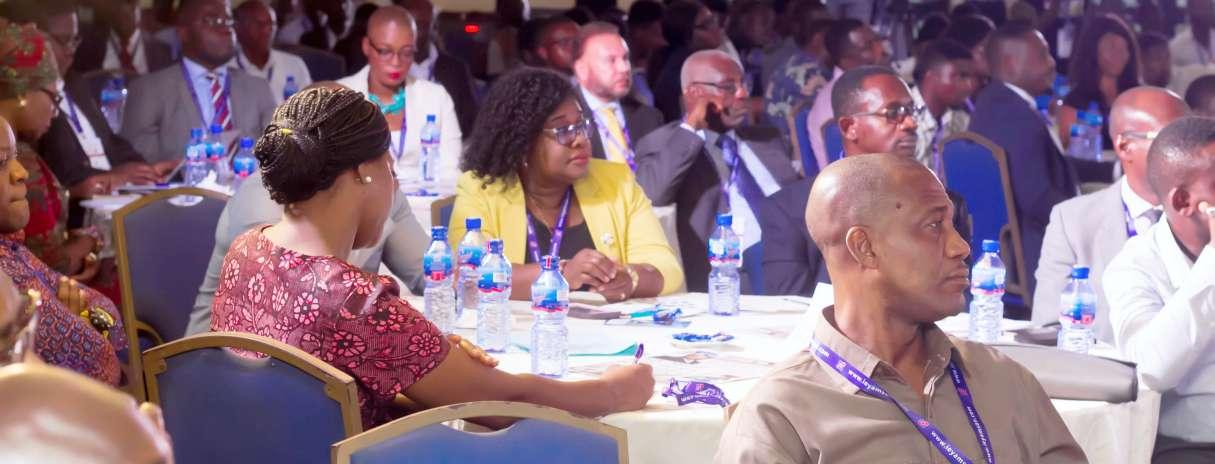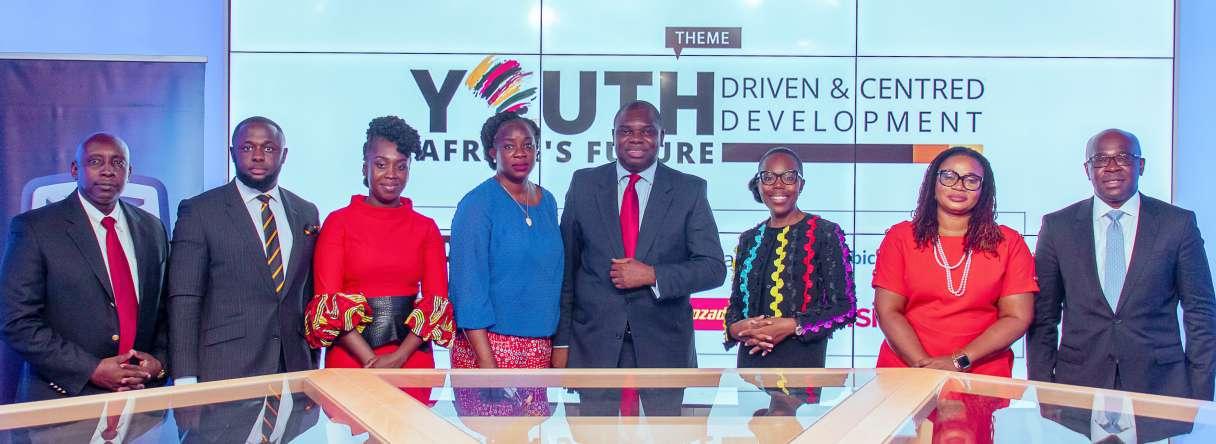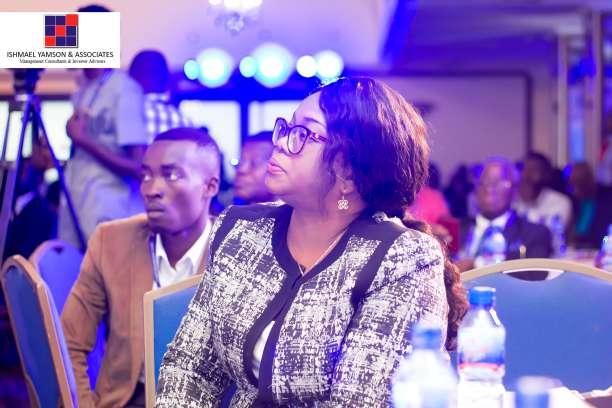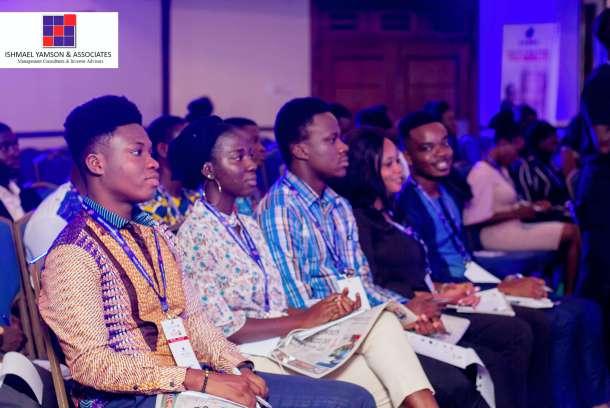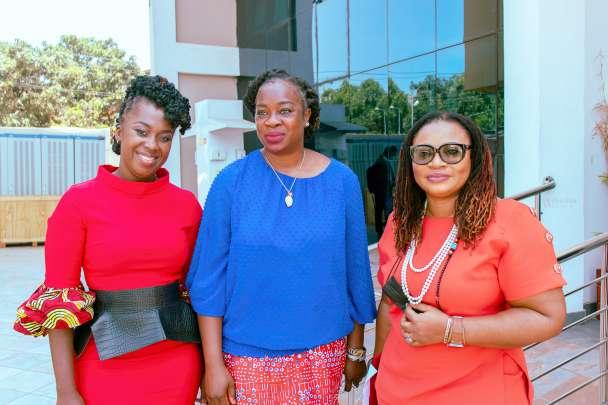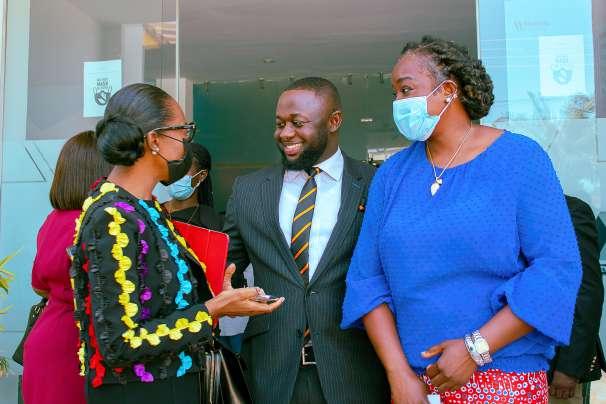













B SI SS24e u n

























“Change will not come if we wait for some other person, or if we wait for some other time. We are the ones we have been waiting for. We are the change that we seek.” – Barack Obama
At Ishmael Yamson & Associates, we take

immense pride in hos�ng the annual Business Roundtable ‒ it is our way of making a meaningful impact and driving posi�ve changeinourcountryandtheAfricancon�nent.
Building the content for this magazine was quite a seamless process as we had a clear understanding of the message we intended to convey to readers. The magazine is enriched by the contribu�ons of trailblazerswhohavesharedexcep�onalinsights.
In recent years, our economy has encountered numerous challenges that are obvious to everyone. As argued by many, Ghana possesses an abundance of natural resources that have been touted as sufficient to help the country meet its needs Leaders have over the years also a�empted strategic efforts to capitalize on the poten�al of diverseindustriessuchasagribusiness,culture,arts and tourism, and the use of technology Although progress has been made, our ul�mate objec�ve of mee�ng the needs of the ci�zens and providing themwithbasicneedsremainsawork-in-progress.
Whatcouldbethereasonforthesetback?
We have failed as a country to establish sustainable ini�a�ves that are able to endure in the long run. Countless promising ini�a�ves have fallen through the cracks over the years, o�en due to changes in government and other unforeseen circumstances.
As the world finds itself in unprecedented �mes, there is a crucial need to build a more sustainable economy
Agriculture has long been the backbone of Ghana's economy, accoun�ng for a significant por�on of employment and contribu�ng to food security Its importancecanthereforenot beoverstated.Ghana can capture more value within the value chain by processing agricultural products and promo�ng agro-industrial ac�vi�es The promo�on of sustainable farming prac�ces and the adop�on of technology in agriculture can also contribute to environmental sustainability and resilience in the faceofclimatechange.
By adop�ng modern agricultural prac�ces, improving access to finance and markets, and suppor�ng small-scale farmers, we are confident thatGhanacanboostitseconomicproduc�vity.
Ghana is now able to a�ract a growing number of interna�onal tourists This not only generates revenue but also creates employment opportuni�es, par�cularly in the hospitality and crea�vesectors‒anindica�onthatourrichcultural
heritage presents a wealth of opportuni�es for economic growth, job crea�onandenhancingthecountry'simageontheglobalstage.
Investments in infrastructure, coupled with effec�ve marke�ng strategies, can showcase the beauty and diversity of Ghana's cultural tapestry Collabora�ons between the public and private sectors, as well as engagement with local communi�es, are similarly key to harnessing the poten�al of our African heritage and transforming it into sustainablewealthcrea�on.

Technology has become an indispensable tool for driving economic growth and development, and our tech sector con�nues to show promising growth. From improving access to educa�on and healthcare to enhancing efficiency in governance and business opera�ons, ICT plays a transforma�ve role in shaping the economy Access to affordable internet connec�vity and the development of digital skills are therefore cri�cal in ensuring that all segments of society can par�cipateinthedigitalrevolu�on.
Ghana can unlock immense poten�al across various sectors by harnessing the power of Informa�on and Communica�on Technology (ICT). We need to therefore create an enabling environment that encourages innova�on and entrepreneurship in the tech sector to fosterthegrowthoflocaltalentanda�ractmoreforeigninvestments.
In conclusion the adop�on of ICT, leveraging Ghana's African heritage, and priori�zing agribusiness are key strategies for building a sustainable economy By expanding internet access, fostering innova�on in the tech sector, promo�ng tourism, and inves�ng in agribusiness, Ghana can achieve economic diversifica�on, create employment opportuni�es, and improve the overall well-being of its ci�zens. These efforts will contribute to Ghana's development goals and posi�on the country as a leader in sustainable economic growth in Africa. Let us seize this opportunity to be the change we seek and drive posi�vetransforma�onforgenera�onstocome.
by Winnifred Adjei-Mireku & Juliana Essel AckomISHMAEL YAMSON AND ASSOCIATES is a management
consul�ng prac�ce which applies two core specialisa�ons; in business and organiza�onal transforma�on, and leadership development, to help clientscreateandunleashvalueforsustainedgrowth. In the face of the current global and local challenges that confront businesses and organiza�ons, we believe our essen�al focus as partners, is to help our clients thrive and unearth the unique capabili�es that can propel them into outstanding organisa�ons, occupying market leadershipoverthelongterm.
The firm draws on the extensive management and business experience of a stable of competent and experienced consultants and associates in designing and execu�ng all programmes, leading projects and strategy implementa�on in the areas of Corporate Strategy, Organisa�onal Restructuring, Process and Systems reviewsandBrandDevelopment.
WeWillWalkWithYou.
PASSIONANDFOCUS
We focus on implemen�ng three impera�ves for public and private sector organisa�ons with a range of services asfollows:
• DevelopingStrategy
1. VisioningandStrategydefini�on: Wehelpcompanies and organisa�ons define their vision and strategies, and translate Strategy into Ac�on to create great, prosperouscompaniesonasustainablebasis.
2. Developing Brands and Channels: We work with the opera�ons and sales teams to help businesses to discover, formulate, and implement powerful consumer, shopper, and trade insights to guide brand visionandstrategydevelopment.
• DevelopingEfficientandEffec�veBusinesses
1. Organisa�onal Reviews & Change Management: We help organisa�ons first to align their structures, people, values, and behaviours to their vision, strategies, and plans; second, we collaborate with them to design the right management systems and processes, which support the delivery of organisa�onalgoals.
2. Governance Arrangements and Systems & Process review: We help organisa�ons to align their governance framework and opera�onal processes
and systems to drive produc�vity and innova�on and the delivery of strategy We work with leaders in organisa�ons to review and streamline their opera�ons to provide the right pla�orm for efficiency andproduc�vitygains.
3. Corporate Services: We offer bou�que consultancy services on capacity building including recruitment, training and development, reten�on and pension planning.
• DevelopingPeople
1 Coaching and Mentoring: We provide interac�ve processes for managers and supervisors to solve performance problems or develop capabili�es. The process relies on person-to-person collabora�on to support the individuals in three areas; technical help, personaldevelopmentandindividualchallenges.
2 Management Educa�on: We bring leading-edge management thinking and a deep understanding of trendsshapingorganisa�ons.
Weserveawidevarietyofclients,including:
1.Localandforeigninvestors.
2.Privatesectororganisa�ons.
3.Publicsectororganisa�onsincluding ministries,departments,andagencies.
4.Non-Profitandnon-governmentalorganisa�ons.
We offer exclusive business training and development programmes on client-specific basis to individual companies and organiza�ons, and also for the general corporate community – businesses in both the private and public sectors. These programmes can be accessed inthree(3)ways:
1. Companies and organiza�ons can register their execu�ves to par�cipate in our adver�sed public programmesonspecificsubjectareas.
2. Companies can request to run any of our programmes in-house. Such arrangements require a minimum number of par�cipants depending on the selected programme.
3. Special programmes can be designed and run for organiza�ons and companies on a need-specific basis. The design of such programmes will be based onabrieffromtheorganiza�onorcompany
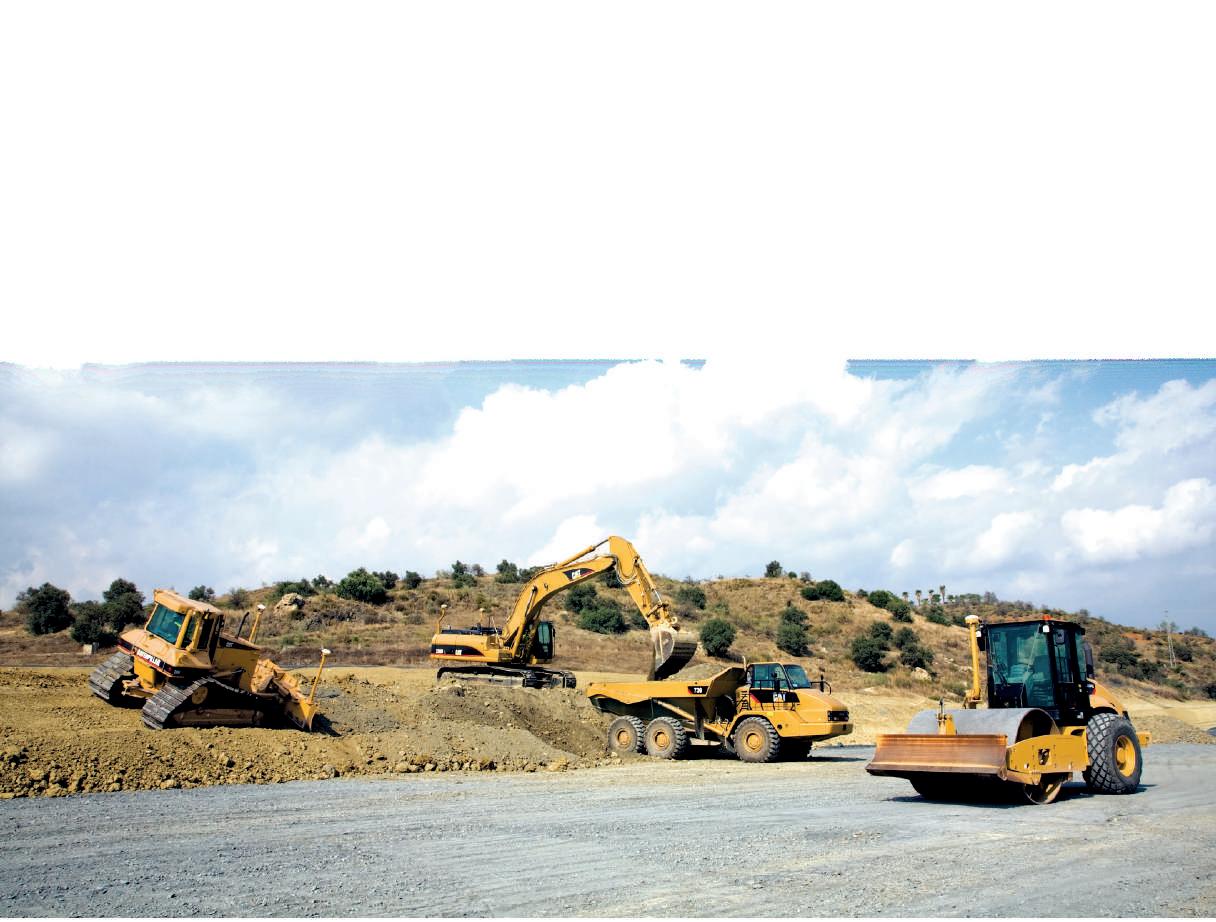



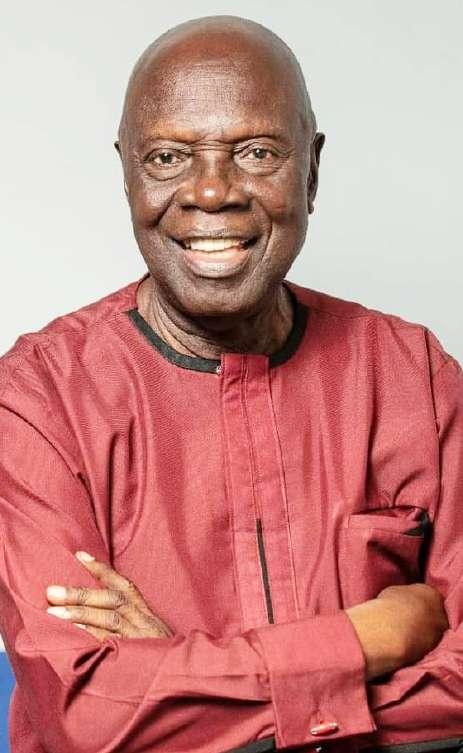
In 2014, when we first launched the Ishmael Yamson & Associates Business Roundtable, our purpose was to help develop strong founda�ons on which to build much more robust economies in Ghana and Africa We decided therefore to focus on issues of economic growth, governance, and leadership, and how these must drive and shape Ghana's efforts towards building a fast growing, sustainable and resilient framework for wealth crea�on, especially as Ghana had discovered oil and begun producing crude oil and gas in commercial quan��es in 2011. Suddenly signs of the Dutch disease were beginningtoemerge,andthatwasaworrytous.
In the fourteen (14) years since 2010 Ghana's economic growth has been inconsistent, with high growth rates between 2010 and 2013, low growth rates between 2014 and 2016, high growth rates in 2017 and 2018, a crash to 0.51% growth in 2020 following the covid-19 disrup�ons, a recovery in 2021 of 5.36% and a sharp decline in 2022 to 3.5%. The forecast for 2023is1.5%.
This clearly is an economy without resilience and sustainability It is an economy which is overly dependent on a very narrow commodity export base but highly import driven, o�en dri�ed around by global economic developments. Sadly, for instance, even with Ghana's enormous arable land, the country is the most dependent on food importsinAfrica.
To my mind, two factors have accounted for this dismal and inconsistent economic performance;
poor governance and leadership without conscienceandpurpose.
Issues of leadership and governance in Ghana have been discussed extensively because of the impact they have had on the performance of the economy and the country's ability to create wealth on a widespread basis. The only period that Ghana has witnessed real economic transforma�on was under the leadership of Dr. Kwame Nkrumah, who had a clear purpose to build an industrial economy, a clear agenda to build Ghana's economic and social infrastructure and a clear understanding of how to build resilience and sustainability into Ghana's economy And he was in power for only nine (9) years!
While the disrup�ve military interven�ons of the 60s, 70s and 80s created major setbacks for the
economy, it is even more true that poor governance and poor leadership have aggravated the difficul�es facing the Ghanaian economy. There is no administra�on that has not been accused of serious economic mismanagement, greed, and corrup�on And regre�ably our democracy has itself become a vic�m of the greed and corrup�on that have captured our leadershipinGhana.

The recent report- Understanding How Dirty Money Fuels Campaign Funding in Ghana- An Exploratory Study, Commission by Adam Smith Interna�onal and prepared by William Nyarko and Kojo Pumpuni Asante of CDD- Ghana, clearly demonstrates how Ghana's poli�cs has been captured by dirty money and excluded many capable and visionary young people from ac�vely par�cipa�ng in the poli�cs of the country This is due to the prohibi�ve cost of running for public office as the young men and women are normally unable to raise those funds. The example of the destruc�on caused by State-capture in South Africa, should make it clear to Ghanaians that any f o r m o f c a p t u r e i s d a n g e r o u s a n d counterproduc�ve, and we must as a na�on fight it.
A�er sixty-six (66) years of independence from colonial rule, which we o�en blame as the cause of our backwardness and lack of development, Ghana is currently a highly and unsustainably indebted and poor country Many thousands of educated and capable young men and women
cannot find jobs and are leaving our shores in drovesforhopeelsewhere,hopetheycannotfind inGhana.
Governance and government are meaningless if they do not create growth. Good governance and good leadership cannot be separated from Ghana's effort to create a wealthy, prosperous country The two are inseparable, and Ghana must make every effort to embed them in its governanceculture.
But even in the midst of this deep crisis, I believe that a return to prudent economic management, an embrace of good governance, and aggressive fight against greed and corrup�on are possible. What remains is our ability and determina�on as a people to reject purposeless and rudderless leadership and elect leaders who can perform and who have integrity to lead our economic and socialtransforma�on.
The Ishmael Yamson & Associates Business Roundtable started this Journey ten (10) years ago and it is our inten�on to con�nue on this path. We therefore invite you to join us, as Ghana embarks on a new journey to create an enabling economic and social environment in which its ci�zens are empowered and feel proud to be Ghanaians.

This presenta�on on Wealth Crea�on as the 4thHorizon forGhana's Growthisintended to seed a review of the op�ons Ghana has to create an economic transforma�on and interrogate some ideas and op�ons best suited fo r t h e r e c o v e r y, d e v e l o p m e n t a n d transforma�on of Ghana's economy. A transforma�on that moves finance, people, jobs in selected sectors from low to high produc�vity andasustainedresilientgrowthtrajectory.
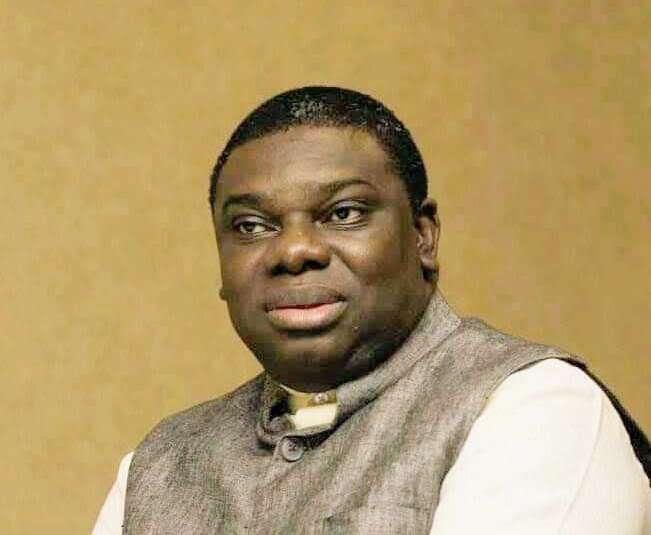
We have always assumed that if we produce more, we will earn more revenue and with more revenue, be able to look a�er our economy and ci�zens much be�er. But the proof of 66 years of
MICHAEL HARRY YAMSON MANAGING PARTNER, IY&Aindependence is that more revenue does not necessarily lead to sustainable development that creates resilient wealth The ques�on then becomes why we have allowed this false paradigm - that revenue equals development equalswealth-tostandforsolong.
If we look at agriculture in the last seven decades, we have paid much a�en�on to produc�on. However, private and public investments in technology, related sciences, agriproduct branding, commercialising value-added agriproducts, and developing global markets for the services and know-how built through the agriculture and agribusiness value chains, have been insignificant and not sustained Consequently, agribusiness remains a daun�ng exercise and therefore a low priority in alloca�ng resources.Thisisinstarkcontrasttothestrategies successfully employed by Thailand, Indonesia, VietnamandMalaysiawhousedagriproductsand tourism to power economic transforma�ons
Largely, revenues from cocoa exports, for example, have not gone into crea�ng new industries, rather, apart from the alloca�ons to scholarships, , the billions of dollars Ghana has earned from expor�ng cocoa have been spent paying for recurrent expenditure and in some cases on bare-faced corrup�on. Li�le wonder that the sector has failed to drive Ghana's development.
Where do we find new ways to create industries from the agricultural supply chains, in planta�ons, in storage, in value addi�on, in branding, marke�ng our food to the rest of the world and export market development? These have the poten�al to turn revenue into new industry-building investments that generate stable, be�er-paid jobs and medium-term wealth. Though mature, agribusiness could s�ll be a source of long-term wealth. It is possible to maximise the residual value, earn significant surpluses and seed long-term growth in new industries.
The story of our heritage and crea�ve industries is not much different. Revenues are mostly spent on low-value-adding ac�vi�es, employing few people in the sector and maintaining structures. Very li�le has been invested in crea�ve industries that help us tell our story be�er to a global audience and generate profits in the process. I giveyoutheexampleofTheLionKing.Thestoryof Lion King originates from Southern Africa. Yet the story has been told to a global audience and commercialised by Hollywood. Hollywood has earned billions from films, merchandise, games, theatre products, and anima�ons Southern Africa saw li�le of that money and the creators of the theme song earned no royal�es. So, what stories do we have that we can tell be�er using different formats that can fetch us billions in revenues beyond invi�ng people to visit Ghana? We can create new industries allied to the original baseheritageandcrea�veeconomy.
Now considering ICT, Ghana sits in the West African sub-region where we s�ll have one of the best educa�onal systems. We have the poten�al to leverage the brain power of our academia and students, par�cularly in the rela�vely new areas
of ICT and technology. Yet, students from across the region who graduate from places like Ashesi University, having developed ICT and technology solu�ons for Africa and the world, leave yearly without the opportunity to register and build their ideas into businesses in Ghana. Today, we are dependent on solu�ons created outside our region based on the needs of other socie�es and cultures. All governments have overtaxed and inhibited the growth of ICT and technology industries rather than incuba�ng technology firms and ICT solu�ons relevant to the needs of our market, the daily reali�es of our ci�zens and solving global problems. It will be be�er to untax technology and demand that firms heavily reinvest their profits to s�mulate new technology industries.
My view is that rather than pursue revenue as an end in itself, it is even more important to decide how we will invest revenue in new spheres of high-value enterprise to generate stable, highquality revenue streams that bring resilience to the economy I agree with the view that Wealth Crea�on means a sustainable acquisi�on and accumula�on of resources to compe��vely generate relevant output and financial flows to a�ain na�onal development goals that fulfil the needs of ci�zens without compromising the ability of future genera�ons to meet their own needsii. This sort of Wealth Crea�on indelibly improvesthequalityoflifeforallci�zens.
Post-pandemic and debt default, there is an openingtoresettheeconomy.
Embracing Wealth Crea�on as the development model for Ghana is right for many reasons, includingtherecogni�onthat:
1. the days of one-size-fits-all solu�ons and expor�ng unprocessed cocoa, metals and fish; and li�le processed and illegal �mber are no longer viable in the new global economic p a ra d i g m G h a n a s h o u l d e m b ra c e differen�ated paths to its wealth crea�on goals and the managers of the economy must implement customised wealth crea�on strategiesforselectedindustries.
2. to remain relevant and compe��ve in global markets requires a diversified reservoir of intellectual property, patents, innova�on, and value-addi�onthatis'Made-in-Ghana'.
3. sustainable profits and savings determine the pace of investments in human capital developments and innova�ons to create new anchor technologies that will maximise the speed, scale and longevity of economic transforma�on.
To paraphrase Dr Seyram Kawor of the UCC, “no country borrows to develop. Borrowingmust only supplement a country's own accumula�on of its own resources and revenues.” Therefore, amid global vola�lity, a fluctua�ng Cedi, vanishing domes�c savings and investments, and emp�ed na�onal reserves, we have to step back and urgently
(1) priori�se crea�ng resilient wealth with robustbufferstocontainmajorshocks.
(2) determine a new vision for wealth crea�on and
(3) decide how to achieve material i m p r o v e m e n t a n d q u a l i t a � v e transforma�on for the benefit of ci�zens nowandintothefuture.
Letmeexplainwhy.
As in Africa and the developing world, Ghana's economy straddles centuries of economic revolu�on from the mechanisa�on of agriculture, the development of industry, the rise of services, and the knowledge economy powered by communica�ons, ar�ficial intelligence, nanotechnology and biosciences Ghana's economy is integrated with the global economy through global trade and financial markets and the intertwining of our economy with these powerful economic systems opens up new opportuni�es for growth and wealth crea�on. Ghana has an opportunity in the coming decades to harmonise all four revolu�ons to accelerate economic transforma�on and wealth crea�on. There is no be�er �me than now when we have been presented with the “historic opportunity to
dosowiththeAfricaFreeTradeCon�nentalArea” toquotetheWorldBank.
On the other hand, we have all witnessed worldwide economic disrup�ons since 2020, and the slide of Ghana's economy into an unprecedented economic abyss that we are beginning to understand began as early as 2018. The ongoing collapse and uncertainty generated con�nue to spook financial markets, slow investment and ul�mately economic ac�vity into the medium term Perversely, if the global recovery con�nues to strengthen and as policies to frame the new global economic order are normalised, an emerging economy such as Ghana, can expect the process to expose its economy to external shocks and adverse spillovers, even as we strive to remain a viable player in key global economic systems – unless we build a more robust economy Just as Winston Churchill advised, we should not waste this crisis. Itisanopportunitytoremodeltheeconomy.

Three major developments are predicted between now and 2040 in the November 2021 World Bank Country Economic Memorandum �tled Ghana Rising: Accelera�ng Economic Transforma�on and Crea�ng Jobs; (a) Ghana's popula�on will rise to 45 million (b) six in every ten people will be less than 30 years old, and (c) about 10 million young Ghanaians will join the labour force and must be gainfully engaged. It notes that "Ghana faces an acute challenge of genera�ng more and be�er jobs and has a 'missing middle' of employment in midproduc�vity sectors". However, all is not lost. The report further acknowledged that Ghana has all it takes to con�nue being an economic development star if it takes the right steps to nurture growth and job crea�on despite the debilita�ng effect of the pandemic. And I will add even more cri�cally restoring prudent economic management. Specifically, the World Bank highlighted;
(1) macroeconomicstability,
(2) financialsectordevelopment,
(3) technologicaltransforma�on,

(4) fosteringgreaterglobalintegra�on, and I will addasakeypoint,
(5) restoring a robust governance architecture to underpinthefourpriori�es
In the Post-World War II process of wealth crea�on, sub- Saharan Africa along with parts of the Middle East, the former Communist-Socialist bloc and La�n America lost ground in various degrees to the winners like France, Germany, Japan, South Korea, Taiwan, Singapore, and Hong Kong, and then, Malaysia, Thailand, Indonesia, and Chinaiii. Some heavily-endowed na�ons and regions mismanaged their blessingsiv whilst countries with precious li�le became adept at sustainably acquiring and accumula�ng resources and improving the lives of their people indelibly We know where Ghana fits in this picture.
Let us step briefly into 1957 to hear Victor Adams' describe the hope and op�mism for a be�er future when church bells rang across the city of Accra to signal the birth of modern Ghana, to the e-newsle�er UN Africa Renewal. He was in his home village of Shiashi, a suburb of the Ghanaian capital. Shiashi had no electricity, roads or piped water There were only eight mud houses in the en�re village. Shiashi and its surrounding areas have since been transformed but signs of underdevelopment s�ll abound, including poor sanita�on, unpaved roads and makeshi� homes. In a way, the story of Shiashi reflects Ghana's uneven economic and social development over the years. A middle school student at the �me of independence, Mr Adams said, "Our country could have done be�er." Many Ghanaians share thatsen�ment.
Ghana requires a new economic model to translate resources and revenues into resilient WealthCrea�on.
Ghana cannot create wealth by just earning more money If that were untrue we would be rich from over 100 years of cocoa, bauxite and gold exports alone. The economy needs a new paradigm where we consciously reserve por�ons of our
earnings to invest in a con�nuous process of resource accumula�on designed to create parallel streams of income through private industry and human capital investments. It cannot be a short-term ac�vity Secondly, wealth crea�on should have a clear intent to generate and distribute opportuni�es across all stages of priori�sed value chains. This clarity is crucial for the quality of outcomes from the alloca�ons of resources:
(1) for human and capital investments to produceabiggereconomy,
(2) to transform Ghana into a technology and innova�on-driveneconomy
(3) tosupportdomes�cindustrialgrowth,and
(4) tosustain,resilientlong-termGDPgrowth. Ghana as a developing country ought to be aggressive about developing opportuni�es through policy-making to a�ract investments We must support innova�on and produc�vity solu�ons that will enable the economy to generate wealth by a�rac�ng the spending and investments of both local and global consumers and investors. The “if we build it, they will come” approach of the Emirates is proof posi�ve of the success of pursuing wealth crea�on as a na�onal objec�ve.
For too long greed and corrup�on, self-interest, poli�cal longevity, the desire for aggrandising , power and social relevance have been the main obstacles undermining wealth crea�on in Ghana. These mo�va�ons end with the erosion of the well-being of ci�zens. Unfortunately, commentary on intangible sources of wealth like the environment, innova�on, intellectual assets, social order etcetera are underplayed and remain elusive in economic and sociological literature. And we dare not look to na�onal glory and honour for inspira�on. Yet, these are what should strengthen the extent to which we produce sustainedeconomicwealthandgrowth.
Some�mes being a late bloomer has its advantages. Once the consensus bakes in, Ghana
will have a fresh canvas on which to define how to straddle the economic revolu�ons in agriculture, industry, services and the new knowledge industriesandvaluechains.
(1) The first horizon should aim to shi� the core of na�onal revenues to agribusiness by rapidly expanding the scale, quality and performance of deriva�ve industries that either add value to or innovate around previously raw or lightly processed agricultural products. It should shi� targeted investments to increase their efficiency and produc�vity. The same logic should apply to value-added cultural exports, tourism productsandotherbasicexports.
(2) The second horizon is the phase for selec�ng and resourcing emerging technological and innova�onindustrieswhichshouldbeatthe core of the New Ghana economy. A successful strategy will create self-funding growth from entrepreneurial ventures that will generate substan�al broad and longterm economic opportuni�es very quickly in thetransforma�oncycle.
The transi�on to technology and innova�on driven industries requires three major shi�s in culture,mind-setandfocusasfollows:
● THESHIFTINCULTURE
Ÿ SharetheVisionandCultureoftheFuture
Ÿ Clearly define the strategic direc�on of the economy and society and get everyone deeply mo�vated by and commi�ed to the journey to transformlives;notjustchangelifestyles.
Ÿ Highlight the new na�onal values and end the culture of seeing the na�on's tolerance for mediocre leaders as infinite and embrace a meritocracy Demand changed behaviours to undergird the transforma�on agenda in terms of personal responsibility and being accountable.
Ÿ Build the right habits to be a self-sufficient economy. Emphasise sound economic principles such as modera�ng consumerism and disciplined work-ethic, building compe��ve advantage across industries, low
debt,andbuyingMade-in-Ghana.
● THE SHIFT IN MIND-SET – STEP OUT. STAND OUT
Ÿ Develop Ghana Inc. as an economic philosophy founded on discipline, keeping high standards, andintegrity;theprotec�onofindividualrights, property rights, and the environment; and the supremacyoftheruleoflaw.
Ÿ Build ecosystems to promote trade and rela�onships that reinforce our development andgrowthplans.
Ÿ Intensify partnerships in markets and knowledge that enable the economy to u�lise natural and human resources more efficiently andeffec�velythanbefore.
Ÿ Break from the socioeconomic and poli�cal norms in the African region. Ar�culate a bold, standout vision about what life, work and leisureintheNewGhanaeconomywillbelike.

Ÿ Increase the savings rate in the economy and make genera�onal investments in mul�ple, long-term income flows; and break the false beliefthatfinancialsuccessispossiblewithouta disciplined focus on raising the rates of savings, (re)inves�ng, and increasing the levels of financial literacy and business skills. Ergo, put wealth crea�on above borrowing and crea�ng unsustainabledebt.
Ÿ Concentrate government spending on na�onal priori�es and human resources founded on broad consensus, not poli�cal ini�a�ves and schemes that drive the cost of government but do not create value; do not waste na�onal resources on short-term projects and conspicuousconsump�oningovernment.
Ÿ Decide more strategically, whose money to use for what. Leverage the geopoli�cs of today Blend the resources of private investors with those of emerging economies, the IMF and World Bank, China, India and the West in seeking financing to invest in skills, physical infrastructure, and business development LearntoGAMEandstopbeingPLAYERS.
(3) The third and farthest-looking horizon of wealth crea�on, targets how to elongate long-term growth by leveraging exploratory investmentsinR&D;anddeployingstrategies and technologies to establish new agribusinesses, crea�ve, heritage, knowledge and technological industries to secure five long-term fundamentals in the NewGhanaeconomy,namely:
1. Job crea�on through the radical transforma�on of the core sectors and transi�oning of labour with new skills into new industries with higher produc�vity –especially innova�on, ICT and business services. These more socially and geographically mobile workers also expand domes�c trade, urbanisa�on, and connec�vity.
2. Produc�vity growth, intensified innova�on and entrepreneurship rates through domes�c firms' adop�on of digital and complementary technologies to accelerate the economic transforma�on. To enable this change, The New Ghana will require r a d i c a l l y i m p r o v e d m i c r o - l e v e l infrastructure, internet connec�vity and investmentsinawiderangeofdigitalskillsto facilitatetechnologyadop�onbyfirms.
3. Inclusive private sector development that leverages domes�c savings and financial resources to facilitate technology adop�on, innova�onandtheexpansionoflocalfirms.
4 Macro and fiscal stability, be�er natural resource management and smart, broadbased revenue mobilisa�on to generate revenues to fund reforms and economic transforma�on.
5. Long-term inclusive growth that incen�vises sustainable exploita�on of natural resources, protects the environment and minimises the impactofclimatechangeonhouseholds.
Leadership isindeedacrucialfactorinthesuccess anddevelopmentofanycountry,Ghanaincluded. It inspires and unites people, drives progress and economic growth, and makes posi�ve changes in
the lives of ci�zens happen. The underpinnings of Leadership are the Values of leaders that play a crucial role in determining the success of any country's efforts towards wealth crea�on. The values held by Ghanaian leaders will significantly impact the country's economic growth, job crea�on, and development. For Ghana to achieve sustainable and inclusive economic growth, its leaders must exorcise the wicked torments of mismanagement, corrup�on and greed; and priori�se core values, the most needed of which are:
1. Integrity: the self-confidence to act with honesty and transparency in all their dealings, whether in public or private sector roles to build trust and credibility with ci�zens,investors,andotherstakeholders.
2. Accountability: the humility to take responsibility for their ac�ons and answer to the people they serve. This means being willing to submit to tough ques�ons, admit mistakes, and take correc�ve ac�on to securethefuture.
3. Innova�on:theforethought,an�cipa�on,and adapta�on we some�mes describe as being visionary Add to that, inves�ng in research and development, entrepreneurship, and the passion to promote crea�vity that changes lives in all aspects of society and all sectors of the economy. This ecosystem enables innova�on, start-ups, and small businesses to thrive.
4. Discipline: respect for the new social norms, therule-oflawandarespectfor�me.
5. Inclusivity: inves�ng in educa�on and training for all ci�zens to ensure fair access to the benefits from economic growth for all segments of society; promo�ng gender equality, and crea�ng employment opportuni�esformarginalisedgroups.
6 Sustainability: priori�sing resilience from sustainable development prac�ces,

protec�ng natural resources, inves�ng in renewable and green energy and the longterm aspects of economic growth, when considering the impact of any policy on the environment, future genera�ons, and social cohesion. We cannot build sustainability in the New Ghana economy without building resilience in finance, supply chains, human capital,andbusinessmodels.
I set out to address five core areas that are cri�cal for us to address and interrogate as we plan to move the Ghanaian economy from the chronic crises periphery of global economic and trade systemstowardsthecoreasfollows:
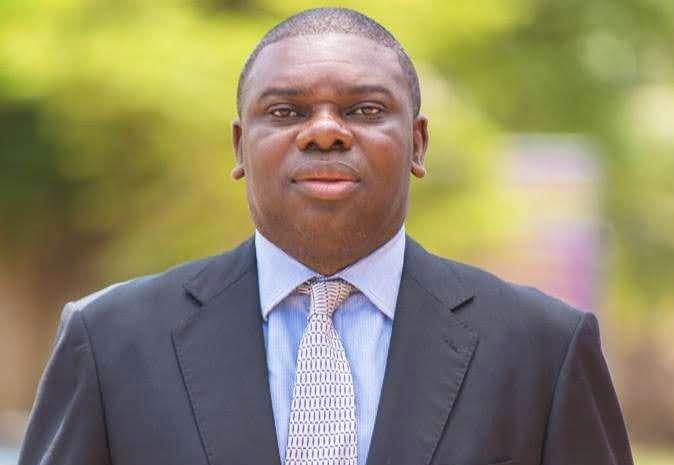
1. ending the false paradigm - that revenue equalsdevelopmentequalswealth

2. selec�ng and inves�ng in new high-value enterprise that bring resilience to the economy
3. building savings to invest in private industry and human capital to create parallel streams of income, resource accumula�on and investments
4 defining how to straddle the economic revolu�ons in agriculture, industry, services andknowledgeindustries,and
5. the importance of leadership values, a�tudes and behaviours as the core underpinning for thechange.
Wealth crea�on as the 4th Horizon of Ghana's Development is a viable, credible economic objec�ve and I recommend further discourse on this.
Thank you.
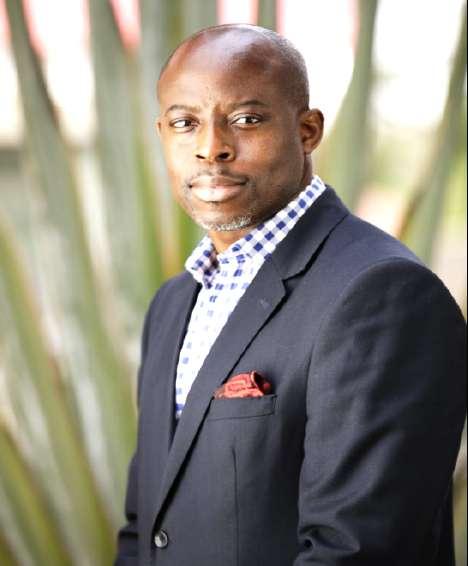
Agriculture has long been recognized as a key driver of economic development in developing countries. In Ghana, agriculture accounts for approximately 19% of the country's GDP and employs over half of the popula�on. Given the large propor�on of people dependent on agriculture for their livelihoods, every government since independence has tried to leverage the sector's poten�al for job and wealth crea�on. Evidence of economic growth opportuni�es offered by the sector are numerous. Ghana has over 18.9m hectares of arable land, including around 5,000 square km of largely unexploited land in the Afram plains, and 148 billion cubic metres of water in Lake Volta alone. We have a youthful popula�on imbued with an incomparable entrepreneurial spirit for star�ng and growing businesses. We are also blessed with a young and growing popula�on whose demand for food presents a lucra�ve market for food producers in other countries, a fact proven by Ghana's annual importa�on of around $2 billion of food. Last, but not least, we also have products like shea nuts and cocoa for which we have natural compara�ve advantage and to which we should be adding more value to boost our local economy. Fundamentally, a two-pronged strategy that focuses on selected import subs�tu�on and value addi�on to local products (both for exports and local consump�on) could form the core of Ghana's agriculture-driven wealth crea�on strategy
Let us first consider import subs�tu�on. According to the Ministry of Finance, Ghana imports an average $2 1 billion of food annually To delve a bit further into these numbers, here are some results from FAOSTAT for 2019 imports on two products that I think Ghana shouldNOTbeimpor�ng:
1. Poultry (Broilers): 213,526 metric tons (es�mated
2 value$308m )
2. Rice: 760,132 metric tons (es�mated value

3$423m )
Now consider the case of chicken broiler meat; my personal bug bear but also my favourite candidate for wealth crea�on by import subs�tu�on. The chicken we eat is essen�ally the result of conver�ng mainly maize and soy into meat (for simplicity let us ignore other inputs). Doing this efficiently involves several actorsinarela�velylongvaluechainthatincludes:
1. the produc�on of high-quality maize and soy seeds (requires R&D, seed produc�on farms, agriculture extension officers, cold storage, logis�csandtransportservices;
2. Primary produc�on of maize and soy, condi�oning and storage, trading by middlemen andontheGhanaCommodityExchange
3. Processing of maize and soy into feed for broilers andlayers
4. Produc�on of hatching eggs and day-old chicks andtheassociatedresearchanddevelopment
5. Poultry farms to raise the birds for slaughter; aba�oirs for slaughter, meat processing companies to dress, butcher and package the meat for onward distribu�on to cold stores and retailoutlets.
All these stages require local employees across several educa�onal levels in both urban and rural areas. In fact, analysis carried out a few years ago by the Injaro team es�mated that around 800,000 jobs would be created or sustained if Ghana fully localized broiler produc�on! Addi�onally, if the value chain operates at the right scale, the country benefits from avoiding shelling out $300m in foreign exchange yearly while adding over $400 million dollars to the economy A similaranalysisofthericesectorwouldalsoshowclear benefits, albeit with fewer actors along the value chain.
With all these evidence of the poten�al benefits, why have our governments failed to subs�tute poultry or rice imports a�er all these years? We will come back to thisques�onlater
There are many who would argue that import subs�tu�on goes against the concept of each country focusing on areas where it has a compara�ve advantage. In the light of the subsidies enjoyed by farmers in many of the food expor�ng countries, I ques�on whether an applica�on of this concept is intrinsically fair to countries like ours where farmers receiveveryli�lesupporttoboostproduc�on.
This notwithstanding, any country seeking to create wealth through agribusiness should also seek to fully exploit products for which it has a natural compe��ve advantage. Ghana has a compe��ve advantage both for export-oriented cash crops (e.g. cocoa, shea and fresh fruits) and for locally consumed products (such as deriva�ves of cassava, plantain, yam) whose demand is expected to grow with the popula�on and also modify as urban lifestyles and consumer preferencesevolve.

For export-oriented crops, our objec�ve should primarily be to increasingly add more value in-country so that we can capture more of the economic value for Ghana. For instance, it is a well- known fact that cocoa 4 farmers retain around 6% of the value of a bar of chocolate. This leaves significant economic value on the table. What if we could capture even 15% of the value of a chocolate bar in the cocoa producing countries? Assuming annual exports of $2bn of cocoa beans, scaling up local value addi�on to capture 10% of the value of chocolate bar would represent an addi�onal $3bn in economic value for Ghana. In these �mes of increased climate ac�on, reducing the carbon footprint of our food could present a strong argument for localizing more stages of chocolate produc�on within cocoa growing countries. A similar argument could be made for shea bu�er, which is a key
ingredient within the global $500 billion cosme�cs industry Ghana could be more proac�ve in leveraging theclimateopportunitytoboostitseconomy.
In exploring opportuni�es to create wealth via agribusiness it is easy to forget one of the more obvious growth opportuni�es, effec�vely targe�ng the local market We must remember that other countries ac�vely assess and target Ghana as an export market because they see the poten�al presented by a growing, increasingly prosperous and urbanizing popula�on. In the light of this we must not ignore the gold mine in our own backyard The evolving tastes of the Ghanaian consumer challenges food processing companies to improve product quality, launch more convenient ready-to-eat meals, see the opportunity in snacking/ea�ng on the go and generally seek ways to deliver value for Ghanaian customers in the same manner that they would target an export market. For instance, many homes in Ghana have migrated to making fufu with flour instead of pounding it the tradi�onal way Convenience and a change in the composi�on of households have contributed to this shi�. Fortunately, there are already several examples of businesses that are ac�vely sa�sfying Ghanaian taste buds with high quality products like shitor, plantain chips, roasted groundnuts, coconut chips, gari deriva�ves, breakfast cereals, cocoa beverages, banku doughs, fufu powder etc. Demand for these staples will con�nue to expand as the popula�on grows and will con�nue to present a lucra�veeconomicopportunityforentrepreneurs.
Whether we are considering import subs�tu�on or value addi�on via processing, there is a central objec�ve that must be at the centre of our focus if we want to transform inefficient underperforming value chains into engines for economic growth - the ac�ve coordina�on of a structured and suppor�ve economic eco-system that is �ghtly linked to consumer markets and designed to achieve profitability for all actors in the value chain by progressivelyincreasingproduc�vity
This concept is not en�rely new Indeed, it has been implemented successfully in Côte d'Ivoire for poultry via a partnership between the government and the associa�onofpoultryproducers(IPRAVI)andunderan umbrella programme called PAPAN (Programme, Dáppui A La Produc�on Avicole). This partnership, signed in 2005, resulted in output more than doubling within four years and the country now has a thriving poultry sector featuring large-scale businesses, like SIPRA, ver�cally integrated from farm to fork. It is therefore not surprising that in its 2017 report, “Time
for Africa”, Rabobank projected Côte d'Ivoire's poultry sector to grow by 6-10% year-on-year between 2015 and 2025. Nigeria is also implemen�ng a similar idea for its dairy sector in an effort to subs�tute around $2.5 billion of annual dairy imports. The Advancing Local Dairy Development in Nigeria (“ALDDN”) is a private-sector led market driven programme that aims to improve the produc�vity of rural dairy farmers and help them sell their products profitably in local markets.Itissupportedbyseveralministries,including theFederalMinistryofAgriculture.
Why do I cite these examples? Well, under the hood of these agribusiness growth vehicles is a market led, commercially oriented strategy that Ghana is well posi�oned to emulate and even improve upon. From studying the examples of our West African siblings one can dis�l some of the key features of a wealth-crea�ng agribusinessstrategyasfollows:
1. Market-Led: There must be established demand for the crop, livestock or agricultural product being targeted for economic transforma�on and wealth crea�on. Demand is typically proven by a significant import bill (e.g. poultry in Ghana), significant external value addi�on (e g cocoa beans / chocolate), or growing and rela�vely inelas�c local demand (e.g. a staple like plantain or cassava). For an export-oriented strategy, a careful analysis of the long-term economic feasibility of forward integra�on needs to be completedtoinformsoundgoalse�ng.

2. Defined Commercial Objec�ves: Increased produc�vity must be at the heart of any agribusiness wealth crea�on strategy. In the case of Côte d'Ivoire's poultry sector, the government insisted an annual reduc�on in producer prices as a quid pro quo for sector protec�on and financial support.
3. Supported by the Government: Commi�ed longterm support from the government is essen�al as such sector transforma�ons could require
infrastructure investments, tax incen�ves, temporary protec�on of the local industry, subsidies, financial risk mi�ga�on, and the ability to harness the resources of development partners to support the central commercial objec�ve. For instance, Côte d'Ivoire imposed a levy on imported poultry products and used those proceeds to seed a fund that provided capital and loan guarantees to SMEs in the value chain. This typeofstrategicinterven�oncanonlybeachieved withanalignedgovernment.
4. Centrally Coordinated and Designed: Whether the transforma�on strategy is led by the private sectororbyagovernmentagency,theremustbea central body to co-ordinate all the actors across the value chain and provide advocacy support for the programme. This can be achieved by se�ng up a board or secretariat with an irrevocable mandate to execute the strategy independently There must also be a clear defini�on of roles, responsibili�es, incen�ves, deadlines and targets for all par�es which must be strictly enforced. The central coordina�ng body should also act as the single point of contact for all par�es seeking to make interven�ons within the target sector or value chain This would ensure that all interven�ons made, including by any NGOs, are consistent with the objec�ves of the transforma�on strategy. The importance of aligning the numerous development partners with the strategy cannot be over emphasized. Currently, Ghana has several NGOs opera�ng in the country each with its own agriculture strategy and typically implemen�ng “projects” that (a) barely scrape the �p of the iceberg in solving real problems and (b) are o�en of such short dura�on that what li�le impact they make is barely sustainable. I would propose that the government mandate that a percentage of all NGO funding targe�ng Ghana be paid into the coffers of the central coordina�ng body to support a very short
list of value chain transforma�on ini�a�ves. This, in my view, would result in more sustainable impactforGhana'sagribusinesses.
5. Tailored Financing Solu�ons: Any long-term transforma�on agenda in the agricultural sector must incorporate accessible appropriately priced financing and risk mi�ga�on products for each segment of the value chain. Private capital needs to be mobilized alongside government and NGO funding sources to provide the blended financing solu�ons required to develop the en�re value chain. Certain ac�vi�es, such as research and development or greenfield primary produc�on, may not be commercially viable in the short term but are essen�al for the long-term success of the en�re transforma�on programme. The central unitmustfacilitatefinancingofallsegmentsofthe value chain, by deploying tax incen�ves, loan guarantees (e.g. GIRSAL), first-loss capital and insurance products. This is to ensure that the conveyor that transforms raw materials into value-added products is not jammed at any point duetoalackofcapital.
6. Repor�ng of Results and Mutual Accountability: The central coordina�ng unit must ensure regular repor�ng on the key performance indicators These performance metrics should, in turn, feed into a periodic performance review roundtable where all par�es are held accountable for their resultsandtheappropriaterewardsandsanc�ons applied to discourage non-performance on the partofanyvaluechainactor.
It is important to recognize two cri�cal success factors aswepursuewealthcrea�onviaagribusiness:
(I) the need for pa�ence and (ii) the need to focus on two or threehighprioritysectors.First,on theneedfor pa�ence,it is a fact that implemen�ng these strategies takes �me, with �melines easily spanning more than a decade They also require persistent investment throughout the implementa�on period. It is therefore cri�cally important that both of our major poli�cal par�es discard their typical games of one-upmanship and commit to implemen�ng the same consistent strategy for the benefit of the na�on Let each government prove its effec�veness by the progress made against the independently set KPIs rather than by other measures that may not be consistent with achieving the core goal of subs�tu�ng a certain monetary value of imports or measurably adding economicvaluetoalocalrawmaterialpriortoexport.
Second, focusing our limited financial capital, human resources and geo-poli�cal goodwill on the two or three sectors with the highest poten�al for job and wealth crea�on is a be�er strategy than having a tall list of ini�a�vesand failingto successfullyimplement a single one. I would strongly recommend star�ng with the poultry value chain and adding on two others, possibly rice and cocoa (for increased value addi�on). Once we lock in on the sectors, let us focus the majority of our capital and resources on those sectors over a 15-20 year horizon and push for aggressive advancement towards the job and wealth crea�on target. If executed right, we will begin to see tangible benefits within five years and cross the sustainability inflec�onpointbyyear10.
In sum, for a country where more than 70% of rural dwellers rely on agriculture for their livelihood and where many industries rely on agricultural raw materials, there is no doubt that a dynamic agribusinesssector remainsa credibletool for crea�ng wealth and catalyzing economic growth. However, achieving the poten�al of the sector requires careful market-led and produc�vity-based strategies backed by consistent long-term government support. The strategies need to focus on a small number of crops or value chains that yield the greatest economic benefit for the country from the perspec�ve of reducing na�onal demand for hard currency, crea�on of jobs across several income brackets, and advancing knowledge-based industrial growth. As a country we need to commit to a long-term effort with a singular focus on commercially sound KPIs that will be pursued consistently across several presiden�al mandates and, possibly, under the supervision of different poli�cal par�es. Other African countries have been able to execute such strategies successfully. I see no reason whyGhanaianscannotdothesame.
1 h�ps://theb�online.com/2022/07/06/essen�alfood-imports-hit-us2bn-annually/
2 United States Department of Agriculture's Global Agricultural Informa�on Network (GAIN) report for Ghanapublishedin2020
3 According to the United Na�ons Comtrade database, the value of rice imports into Ghana in 2019 was approximatelyUS$423million.
⁴h�ps://www fairtrade org uk/farmers-andworkers/cocoa/
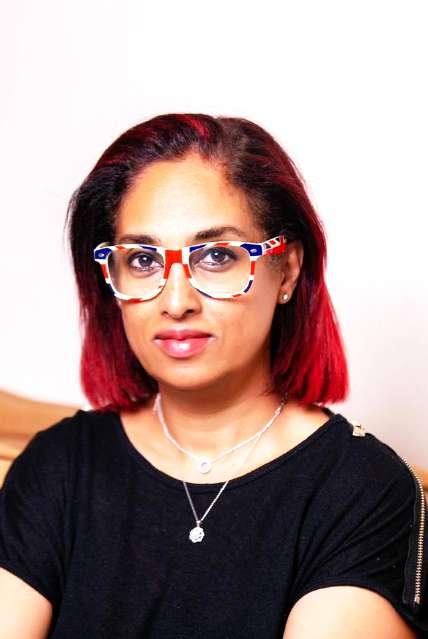 By Fatima Alimohamed
By Fatima Alimohamed
Agriculture is the backbone of many African
economies, providing employment for a significantpercentageofthepopula�onand contribu�ng significantly to the Gross Domes�c Product (GDP) of many countries. Agriculture in Africa is characterized by smallholder farming, which is the predominant form of agriculture across the con�nent. Despite the challenges associated with smallholder farming, such as low produc�vity and limited access to markets and financing, it remains a cri�cal source of food and income for millions of African households. As we say in Africa, a farm is a grand teacher It teaches pa�ence and careful watchfulness; it teaches industry and thri�; aboveallitteachesen�retrust.
In recent years, there has been a growing recogni�on of the poten�al of Africa's agricultural sector Many African governments, as well as interna�onal development partners, are inves�ng heavily in agriculture to support smallholder farmers and promote sustainable agriculture prac�ces There are also increasing efforts to leverage new technologies, such as mobile applica�ons and precision agriculture, to improve produc�vity,increaseaccesstomarkets,andreduce foodwaste.
As Vandana Shiva says ' the earth is dying and with her, we humans too are a species in crisis. As we live
and breathe, we face mul�ple crises, the health pandemic, poverty, hunger, climate change and biodiversity loss. Over and above that there is an emergence of injus�ces, exclusions, inequality and dispossession. All are rooted in the illusions of superiority over a person or nature'. As a Country and as a Con�nent, we need to go back to collabora�on over compe��on and connec�on over separa�on. Capitalism has made us forget the art of sharing, especially food. It is becoming a sad reality in the world today that it is illegal in some places to save or even share seeds with your friends for plan�ng Thanks to the heavily commercial industrial agriculture, companies can patent their seeds and dictate how you use them on your farm. Luckily,wehavean op�on,and thatisto learnabout the art of saving seeds from your harvest, so that you will not have to rely on expensive, patented seeds that could put you at loggerheads with the law Weneedto
teach our farmers how to improve access to seeds byconservinglocallyadaptedvarie�es.
Unfortunately the goal of the neocolonialist is to keep Africa as impoverished as is, however what is sadder is that we choose to have a subtle colonialist mindset with the fear that we are not capable to achieve greatness on our own. The division of the African Con�nent into 54 countries is a subtle way
“ The average person is s�ll under the aberrant delusion that food should be somebody else's responsibility un�l I am ready to eat it.” Joel Sala�n
to keep us divided and that is the only reason neocolonialism is possible. We can only eradicate this through toiling our own land and soil and feeding each other first and this is where agriculture and agribusiness is at the root of any economic growth.
Our vision as Africa, must be forward looking. Look at the Arab emirates, they took their oil and played such economic poli�cs with it and turned their desserts into financial nerve centers. Germany lost two world wars and were split right in half during the cold war, but see the economy of Germany today, who can remember this even happened. Japan, a Country that was nuked twice rose by focusing on building an impac�ul agric sector and defeated the west to become the top 3 economies of the world. How did they do it? We need to learn from them, we need to figure it out and replicate. We need to stop selling our land and our water rights, we need to ensure food security for all. Depending only on cocoa is short sighted. I said this over 6 years ago and today the reality is facing us with China and New Zealand producing Cocoa! Research and development added with technology that enables them deploy lower produc�on costs has been the forte of the Asian Na�on and it won't come in as a surprise if one fine sunny day, they capture a sizeable market and we are le� behind wonderingwhenandwhathappened.
We have more resilience as a people than the two examples I have shared above, but more than resiliencewealsohavethebrillianceandareagi�ed Con�nent. We have na�ve wisdom, a�er all we are the cradle of mankind and civiliza�on meaning we have na�ve wisdom when it comes to farming and feeding ourselves. we have good lands, good consistent weather, water bodies, labour force and a rich earth full of minerals; something that Japan and Germany or the Arab emirates did not have clearing showing that development can even happen in the absence of resources, yet we have all the resources si�ng here on the Con�nent that is used for medicinal purposes, for technology and to keep the world alive. We have a truly global market that we serve. We are the cradle of the food value chain.
AliMazruimadeaverypowerfulstatementwhenhe said “ Africa produces what it doesn't consume and consumes what it doesn't produce”. Kwame
Nkurumah on the other hand from 1957 right through the 1970 pushed the idea that true libera�on would only be realized if Africa could feed itself.Hisearlyobsessionwasofgreeningthesahara dessert and the ini�a�ves of his imagina�on to create a university that focused on Agriculture and technology. To date we con�nue to see poli�cal leaders always put agriculture/ farming/ agribusiness as pride of place in their manifestos but con�nue to lack self-sufficiency in produc�on of foodespeciallygrain.
Why can Africa not feed itself? Our level of nutri�on was much higher back then than it is now where we arefocusedonimportedprocessedfoodsleadingus to have what was once known as the rich man's disease; cancer. We must uphold the principle of produc�vity exploit our agriculture sector to the benefit of the ci�zens and maximize the value on the con�nent. Expor�ng finished goods is the key to sustainable economic growth and crea�ng jobs for the Con�nent that has the youngest popula�on globally
We are seeing farmers and the youth especially moving from lands and farming that has offered them food sovereignty and independence to work in factories in what is referred to as the monetary economy due to the harsh cost of living. We need to go back to basics and teach children from kindergarten all the way to high school how to grow our own food. We have the land to grow, but people don't know or don't have the tools to grow! Hunger games (if you know, you know) is ge�ng a li�le too close for comfort. The young ones are the next genera�on are the ones to fix the mess we have created. Convincing young people to farm isn't the hardest part, the hardest part is telling them that they'll get money out of farming. Current corpora�ons and Governments outside and within the Con�nent are all fixated and invested on profits and tax. We need to start as many local small scale growing spaces within communi�es as change can only begin at community levels This actually reminds me of the Gandhi tradi�on set of people, place and prac�cality. We need more naked feet, morehandsinthedirtandmorerealfood!
We need to do away with the mindset that many have that playing in mud or farming is for the poor Soil, dirt, mud or earth, whatever you call it, it is rapidly disappearing and that could have a huge
knock-on effects for farming and the food that we eat. Look below your feet. Chances are you are standing on flooring built on concrete. And what is under the concrete? Ghana is slowly turning into a concrete jungle and the more shi� we see of people totheurbanareasthemoreconcretewillrise.
Urban regenera�ve farming is another area of opportunity. It is all about going to basics; how to source manure, compost and seedlings - without money? A learning we can take from Grassroots Economics in Kenya who are showingpeople howto use a community currency to access resources, training and create exchanges of services amongst urban farming passionate. An excellent example of regenera�ve economic. We need to bring together those passionate about agribusiness to find solu�ons to food security where ideas and ini�a�ves that present urban residences as part of the solu�on to fight hunger and malnutri�on in an aesthe�c ways. Kenya has been able to showcase this is an ini�a�ve called 'beauty with food' using ver�cal gardening that can be placed anywhere from balconies to roof tops Regenera�ve agriculture is an emerging and exci�ng area within the agricultural industry. With an ever-growing popula�on, providing food while maintaining sustainable agriculture produc�on is a difficult probleminneedofaresolu�on
Climate change is another area we are not paying a�en�on to on the Con�nent even more so in Ghana with the whole galamsey business. A Na�on that destroys its soils destroys itself. Our land is not merely soil but a fountain of energy flowing through a circuit of soils, plants and animals. We somehow live in a bubble thinking that what happens in the first world doesn't affect us, forge�ng that we all live under the same atmosphere. Healthy soils host more living organisms making the earth more resilient to climate disasters such as flooding and drought. We need to priori�ze prac�ces such as galamsey mining versus farming, agroforestry that combines trees and other companion plants on along side food crops. Good news is; we can reverse theeffectswithregenera�veagriculturalprac�ces!
The rich rule the poor and the borrower is a slave to the lender Earth has enough for humans needs but not for humans greed. All beings need their share of
ecological space and the right to par�cipate in the livingprocesseswhichensurefood and waterforall. Sustainability and jus�ce are interconnected and robbing others of their righ�ul share deprives them oftheirbasicneedswhichonlydeepensthecrisesof food, water, poverty, hunger and starva�on. We mustlearntogrowmorelocal,livelocalandtakethe windoutoftheglobalimportsails.Weneedtowake up and see the world of tomorrow with the next genera�onseyes.
Look at what India and China have accomplishes in the last twenty years. Rwanda has shown that it is possible to do things in Africa. We just need to create ethical governance structures to ensure policies do what they ae supposed to do. Growing food is an act of survival whilst corporate capture is an act of corrup�on. Food freedom comes from growing local, natural and self-regulated. African farmers have been trapped in a cycle of debt in a system that actually harms them and their livelihoods. It is a nega�ve economy that also contributes significantly to chemically polluted soil and water ways, biodiversity loss and climate change.Thecostofthesystemoutweighsthereturn for farmers. That is why food produc�on is kept ar�ficially afloat by Government subsidies The benefits go to agro chemical organiza�ons and ultra-processed food processors than t farmers of theconsumers.
Around the world colonizers imposed their food preferences on the lands they invaded, eradica�ng local crop diversity, Indigenous food culture, and food wisdom. Bio-imperialism effec�vely eroded ecologically appropriate, climate-resilient, waterprudent, and nutri�on-rich millets. We need to look at farming sustainably and the impact of nutri�on; millet is a good alterna�ve to maize that consumes ten �mes less water than wheat, twenty �mes less water than paddy and is highly nutri�ous than corn. Yet in Ghana we do not consume it as much. Millet is a supper food that provides solu�ons to our failing guthealth,climatecrisisanddeser�fica�on.
What covid and the Russian/Ukraine war has taught us is that localiza�on is key The ongoing war has once again laid bare just how fragile globalized food systems are. The current globalized, industrial agrifoodsystemisafoodsystemthatcreateshunger by design rooted in greed. The food crisis should be a wake up call to building resilience in food systems
and local food value chains. We need to address the elephantintheroom.
GMO is another topic that we need to really discuss asthereseemstobeasubtlemovetoallowingGMO seeds into the con�nent which is actually being driven by greed and a�empts at control by biotech companies. Locally adapted seeds are much more resilient to climate change and sustainable than lab created solu�ons. Food is from nature not from a lab, nothing good comes out of science playing God and going against nature. GMO crops such as corn, soy, co�on and alfalfa tend to be planted as “monocrops” — acres upon acres of a single plant species. Monocrops are the opposite of diversity, and plan�ng them makes the ecosystem very fragile. Growing more diverse plants, as well as integra�ng the different plant species as much as possible, makes farmland naturally more resilient to weatherextremes,droughtandpests
One of the other challenges that con�nue to face us isthathistoricallyfarmlandscon�nuetoberuledby patriarchy. Women in Africa s�ll suffer from land ownership. The oppression of women is deeply intertwined with the exploita�on of the planet. We need to as a Con�nent create a sustainable future for all and this can only happen through empowering women and challenging the system of oppression to create an equitable world and sustainable future for everyone regardless of gender, race or socio economic status. Women and those with marginalized iden��es have shown �me and again how resourceful and resilient they can be, even in the face of massive injus�ce and obstacles. Women farmers toil and moil; they plant, weed, harvest and sell produce to feed the community Womenalsoac�velyplayaroleinreinven�ngbe�er
ways of doing agriculture, and also put to prac�ce useful technologies. They go to great lengths to keepthewheelsofourfoodsystemsrolling.
The supposed first world are doing everything possible to ensure they not only have healthy organic food but are food secure. In Switzerland for example, they grow their food, make cheese, bake bread in almost every home Mushrooms are available in cellars to grow, while underground gardens are a thing and sun lamps are used in absence of sunlight during winter We need to drive educa�onal ini�a�ves to help our people get more local food grown, produced and harvested. We need to get back to a partnership society and away from the dominator one that we have found ourselves in as a Con�nent. We must reconnect agriculture with culture, showing that our most basic means of nourishing ourselves must be valued as a holis�c part of our lives - speaking to issues of land access, economic, social jus�ce, and sovereignty - highligh�ng that the solu�on we need is a revolu�on. We really do have so much to learn from our communi�es, indigenous communi�es who have been growing their own food for ages in the different regions in Ghana and across the Con�nent.
In summary, Africa and Ghana in par�cular has a strong agricultural sector, infinite opportuni�es with significant poten�al for growth and development However, there are s�ll many challenges that need to be addressed to fully realize the poten�al of African agriculture, including improving access to financing and markets, promo�ng sustainable agriculture prac�ces, and addressing climate change impacts. Food is living currency,essen�altoalllife!Insoilwetrust!
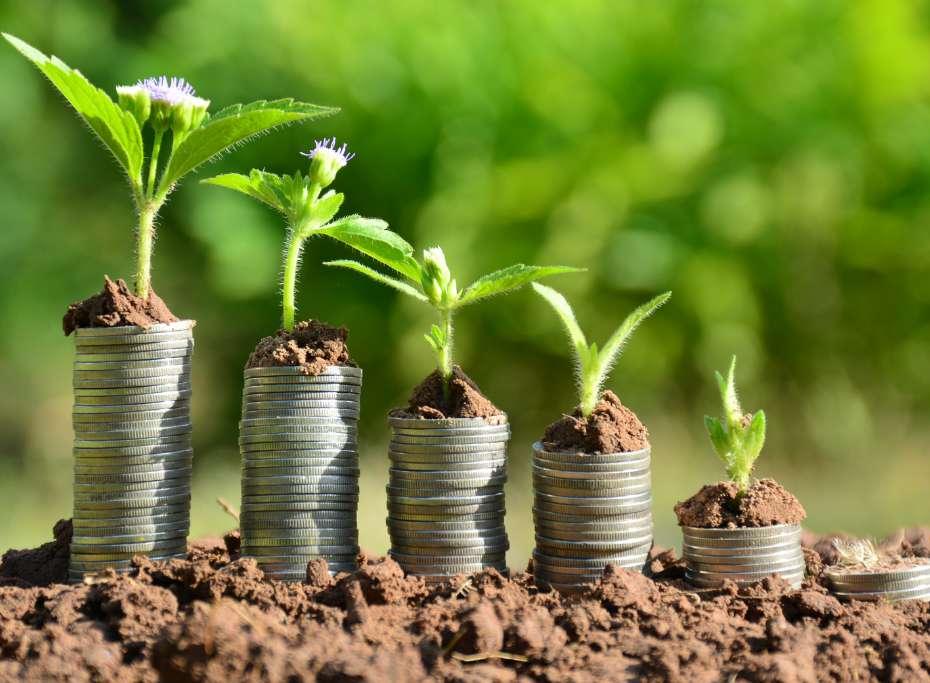
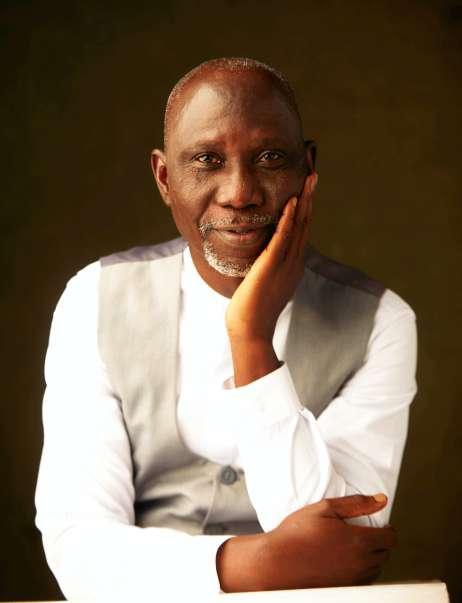
In the late 90s, I worked with an automobile company that was the local agents for three European car brands. We worked under an European who had oversight, not just for Ghana, but for the whole of Africa and the Middle East. Every year, this man came to Ghana to monitor our opera�ons and understand our market be�erandhowwecouldmaximizeourmarketpoten�al. From Ghana, he traveled to South Africa and then back tohisbaseinEurope.
I no�ced that whenever he came to Ghana, he was eager to leave.If for anyreason he spent morethan two days in Ghana, he became very irritable and impa�ent. We assumed that it was because he was a very busy man with a heavy schedule and so he could not afford to spend too many days outside his base Then we discovered that when he le� Ghana, he would spend not lessthanaweekinSouthAfrica.
Now, the South Africans were not doing much be�er than us in terms of sales and so we wondered why this busy man who could not spend more than two days in Ghana would happily spend more than a week in South Africa. On one of the annual conferences in Europe to which all the agents across the world a�ended, we met our South African counterpart and asked him if he could help us understand why he got to host the man for over a week but we could not hold him for more than two days inGhana.
Themanlaughedandasked,“Howdoyouoccupyhim?”
Wesaidwegivehimthebestaccommoda�onGhanahas to offer and then we ensured that every informa�on he would need was available and we ensured he got to meet the right people in government and in relevant sectors.
“And then a�er office hours, what do you do?” the South Africanasked.
“We take him to his hotel so he could have a good night's rest,”wesaid.
The South African said, “That is the problem. You don't engage him in the evenings.” Then he said, “When he
comes to South Africa, we make sure that every evening, he experiences and enjoys a different kind of cultural andar�s�cevent.”
We looked at each other's faces. In Ghana, apart from taking him to different drinking spots and restaurants, there was nothing to offer him by way of entertainment andar�s�cexperience.
This is the experience of just one company but I am sure that other companies that host foreign guests have the same dilemma. The various interna�onal airlines bring in hundreds of foreigners every day. most of these are investors and businesspeople with a clear agenda for their visit. But when the business day is done, the most we have to offer them is a dinner and alcohol and not much else. How much does Ghana lose because we are not able to engage these guests outside the business environmentcanonlybeama�erofspecula�on.
In 2009, I took my play, Unhappy Wives, Confused Husbands, on the road to Kumasi. We had two shows on the day As I stood at the car park welcoming patrons for the second show, a man walked up to me and gave me an envelope containing £200. “Sir, what is the envelope for?”Iaskedhim.
He said, “Uncle Ebo, this is to thank you for bringing your play to Kumasi.” He said, “For those of us who don't drink, there is nowhere for us to go in Kumasi and so thank you for making our evening and please promise to comemoreo�en.”
I traveled to Tarkwa and the situa�on was the same. I met people who yearned for some ar�s�c event but werestarvedofitbecauseitwasnotavailable. The tragedy is that Ghana has not woken up to the poten�al of the culture, arts and tourism to turn our economicfortunesaround.

Elsewhere, governments used the arts and cultural sector to revive their economics, especially a�er the debilita�ng effects of the COVID shutdowns. And the figures speak for themselves These figures were released by the American Bureau of Economic Analysis (BEA) from The Arts and Cultural Produc�on Satellite Account.
The cultural industry in Arkansas employs nearly 27,000 individuals and generates $927 million in personal income for Arkansas ci�zens Cultural and arts enterprises are the state's third largest employer—a�er transport and logis�cs and perishable and processed foods.
In North Carolina, the wages and income of workers employed by cultural, arts and tourism industries infused$3.9billionintothestate'seconomyin2006. In Massachuse�s, the cultural, arts and tourism sector contributed$4.23billiontothestate'seconomy
For2021,theBEAdatashowedthatatthena�onallevel, the arts and cultural sector in the U.S. contributed $1.02trillion to the American economy. This amount, according to the BEA data, was greater than the value addedbysuchindustriesasconstruc�on,transporta�on andwarehousing,mining,andagriculture.
It is important to note that according to the BEA, the cultural, arts and tourism sector contributes more to America's GDP than agriculture and mining, the two sectors that remain the key focus of successive Ghanaian governments. The American data makes a strong case for Ghana to take a serious look at the cultural, arts and tourism sector in Ghana because that sector could be the salva�on of the weak Ghanaian economy.
Ghana has rich and diverse cultural heritage and yet, unlike other countries, we are not making the most of what we have. For instance, although some people complained of the huge sum (£100m) that was being sank into the corona�on of King Charles III in the UK, the ceremony, the highest display of Bri�sh culture, was expected to give the UK economy a massive £8.0billion boost.(CNN).
We may not have anything in Ghana that compares with the Bri�sh monarchy in terms of its reach but we have kings in Ghana whose events, if properly organized and structured could make contribu�ons to the economy I
watched on YouTube what happened in Kumasi when the Asantehene returned from King Charles' corona�on and Asanteman decided to celebrate Otumfuo for the honor he had brought to Asanteman. Otumfuo was met by a large crowd at the Kumasi airport and then he was taken on a celebratory parade through Kumasi. The crowd that joined in the parade, in cars, on horses, on motorbikesandonfoot,wasmassive.
The ques�on is, how much advantage did Asanteman or Ghana take of the occasion to impact the economy of Kumasi? If even T-shirts of the picture Otumfuo took with King Charles at the Buckingham Palace were printed for sale, I am sure they would have sold out. As it was,therewasalotofcelebra�onandeuphoriabutvery li�le business, beside the business that those who sold sachet water along the route might have made selling to thoseintheparade.
It is obvious that as a na�on, we have not averted our minds to the economic poten�al of our culture, arts and tourism. We have fes�vals like Homowo, Aboagyir, Bakatue and others that could boost the economy but unfortunately,wehavenotmadethemostofthem.
In addi�on to these tradi�onal fes�vals, there are new fes�vals like Charle Wote Fes�val, Carnival on Osu Oxford Street etc. These, both the tradi�onal and the new fes�vals, have huge poten�al for impac�ng our economy but unfortunately we do not seem to catch the visionasana�on.
As a na�on we can no longer say we are not aware of the economic significance of such events because we have examples to make us even more determined to make the most of our cultural and ar�s�c offerings. Take Ghana's Year of Return in 2019 as an example. The event marked 400 years since the first enslaved Africans reached America. The government invited all people of African descent to return to the con�nent – specifically Ghana – to rethink their iden�ty and reclaim their roots. According to the then Minister of Tourism, Barbara Oteng-Gyasi, the event which a�racted celebri�es like Steve Harvey to Ghana, generated a total of $1.9billion to Ghana's economy Some of the ac�vi�es that contributed to this figure included air travel, hotel accommoda�on, transport fares, as well as other key entertainmentevents.
In 2021, I traveled to Abe�fi to speak at the Presbyterian University. It was the first �me I was traveling on the Kwahu mountains since the late 80s. When we came to Kwahu-Nkwa�a, I was blown away by the Rock City hotel. Nothing had prepared me for that kind of facility tuckedawayintheKwahumountains.
On my way back from my engagement at the university, I gotthedrivertostopatthehotelsoIcouldtakethesight in be�er I wondered then, why the owner of the facility had not put it up in Accra, where I thought he would
havehadmorebusiness.
Fortunately for me, a few months later, UNDP invited me to speak at their staff retreat at that hotel. I took advantage of the trip to engage the manager of the facility and I was pleasantly surprised that because of the annual Kwahu Easter program, the facility was bookedyearsinadvance.
The good news is that it is not only the Rock City that benefits from the annual Kwahu Easter The fes�val has been one of the biggest events in Ghana and although figures are not available, it is reasonable to assume that theeconomyofKwahuisenhancedbyit.
The point I am making is that the poten�al of our cultural, arts and tourism sector is huge but there is work to be done and government must lead this effort orthepoten�alwillnotbefullyrealized.
Sofar,Ihavetriedtomakeacasefortheeconomicvalue and significance of the culture, arts and tourism sector but the sector has more to offer than just direct economiccontribu�on.
I am talking of the intrinsic values that the sector offers which are: to entertain, to delight, to challenge, to give meaning, to interpret, to raise awareness, and to s�mulate.
These non-market values are difficult to measure in monetary terms but they are just as important as the direct economic values. While jobs can be created by many economic ac�vi�es, we need to ask the ques�on, what other sector can generate these same intrinsic values?
When Gallup and the Knight Founda�on set out to answer the ques�on “What a�aches people to their communi�es?” in a three-year study, researchers found that the key reasons cited by residents for loving their ci�eswere:
·entertainment and social offerings, ·how welcoming thecityis,itsaesthe�cs—
Inotherwords,theartsandculture.

Mayors in the USA are embracing a new concept for designing their ci�es. The concept is called “crea�ve placemaking.” In a white paper on crea�ve placemaking for the Mayors' Ins�tute on City Design, the Urbanplanning researcher Ann Markusen defined this conceptthus:
“In crea�ve placemaking, partners from public, private,
nonprofit and community sectors strategically shape the physical and social character of a neighborhood, town,cityorregionaroundartsandculturalac�vi�es.” In crea�ve place-making, the arts are used to develop an area where people want to live, work and congregate.
The possible economic impact of crea�ve placemaking was explained by Jamie Benne�, director of public affairs for the American Na�onal Endowment for the Arts. He said, “A theater has 1,000 people show up at eight o'clock and leave at eleven o'clock. A museum might have 1,000 visitors spread out over the course of an eight-hour day. A rehearsal studio might have 30 people coming and going every hour over 12 hours. You put the three different organiza�ons in proximity to one another and, all of a sudden, you have a full day of posi�ve foot traffic on a street — feet that belong to people who need to eat meals, buy newspapers, go shopping and take public transporta�on. You have everymayor'sdream.”
The key is to treat the arts as an essen�al part of the city's iden�ty Successful crea�ve placemaking builds the economy at the local level, enhances surrounding non-arts businesses and provides job opportuni�es and ways for individuals to par�cipate in ac�vi�es associated with the arts and cultural events. The results bring people together, spark community pride and createamorevibrant“place.”
This is the direc�on some developed na�ons are going in building and designing their ci�es with a view to making them economically strong and Ghana cannot affordtoignorethewisdomandvalueofthismovement towards making the arts and culture central to social andeconomicdevelopment.
Cultural capital, which is defined as the sum total of a country's wealth or stock of art, heritage and other kind of cultural expression, like other kinds of capital, needs to be invested in – otherwise it will depreciate and be devaluedover�me.
So far in Ghana, we have treated the arts and culture sector in the same way we used to raise domes�c poultry in the past. We leave the players in the sector to struggle on their own and hope that something good will come out. I argue that the poten�al of the arts and culture sector and industries is too important and so needed by Ghana that we cannot con�nue to pay lipservicetoit.

As a young girl growing up, I realized very quickly the role agriculture played in ensuring there was food on the table. My Dad, who is very passionate about farming, introduced my siblings and myself to farming at a very young age. I have so many fond memories of our visits to our great-grandparents in Kwabeng in the Eastern Region, who were farmers. The walks we would take from the house to the farm and the lovely �me we had not just admiring nature, but also par�cipa�ng as much as we can in whatever ac�vity we could find ourselves doing on the farm. Those were proud moments for me because I knew thatthroughtheirefforts,familieswerebeingfed.
Agriculture is a significant contributor to the Ghanaian economy and an important source of employment, with over 40% of all workers engaged in farming. In 2021, the share of value added by the agriculture, forestry and fishing sector to the gross domes�c product in Ghana amounted to 19.71%. The sector remains an important source of income for many households hence it remains essen�al to the country's sustainable growth and development due to its impact on employment, income genera�on and poverty reduc�on. Many of the primary ac�vi�es within the sector include cereal produc�on, mainly maize, sorghum and rice, vegetable produc�on and poultry produc�on Some other ac�vi�es include livestock rearing and fish farming. As a country, our focus has been on produc�on, with li�le a�en�on devoted to value addi�on.

The agricultural sector which has been the principal sector for the development of Ghana's economy has since the colonial era undergone many poli�cally-led reforms which have led to marginal growth with low contribu�on to agricultural industrialisa�on, and perhaps most importantly, no significant impact on the livelihoods of smallholder farmers who form about 70% of food producers in the country. In the early six�es and seven�es, there was the establishment of large-scale state-owned farms which was anchored in the opinion that small-scale farming was difficult to modernise. However, the economic and social benefits of tradi�onal small-scale farming were also recognised, hence the establishment of commodity development boards toenhancetheagriculturalac�vi�esofsmallholder farmers.
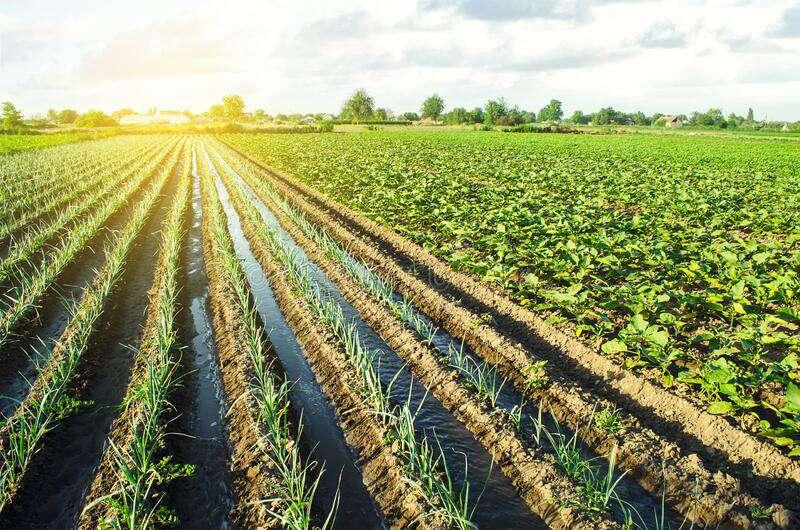
The famous 'Opera�on Feed Yourself' and Opera�on Feed Your Industries' policies, championedbytheAcheampongregime,wereall targeted at increasing produc�vity for consump�on and industrializa�on. During this period the state relied on a system of high direct and indirect taxa�on of agricultural commodi�es, control of agricultural marke�ng, input supply, and storage, through public administra�on with lesspar�cipa�onbytheprivatesector.
Structural adjustment programmes as a response to the economic crises of the late 1970s led to massivereformsintheagriculturalsector Policies reduced the role of the state thereby leading to increased priva�sa�on. These policies included theremovalofsubsidies,disbandingofmarke�ng boards, support for export crop produc�on, land tenure administra�on reforms to enable foreign direct investments, and the liberalisa�on of trade in all sectors. Increased private sector involvement led to significant produc�on growth due to land expansion and the applica�on of modernfarmingprac�ces.
As a response to the liberalisa�on of Ghana's economy coupled with the need for foreign direct investments, within a doctrine of modernisa�on of agriculture under private systems, there has been a rise of large-scale commercial farming. The state also facilitated land acquisi�ons for many foreign companies However, many of these companies are engaged in agro-fuel crop produc�on,whichisnotconsistentwithhistorical foodandcashcropproduc�on.
The focus on modernizing agriculture especially with our small-scale farmers has seen very li�le improvement with minimal output. The Plan�ng for Food and Jobs (PFJ) policy introduced was to increase food produc�on in the country to facilitate the transforma�on of Ghana's agriculture. The policy rallied all ci�zens to grow grain crops and vegetables, encouraging all
ins�tu�ons to set up their own farms to feed the na�on, export the surpluses, reduce the excessive food import bill and generate employment for Ghanaians This it hoped to achieve through the introduc�on of subsidies of inputs such as seed and fer�lizer to encourage farmerstouseimprovedseedsandapplyfer�lizer therebyincreasingoutputonfields.
Despite all these reforms, Ghana s�ll relies heavily on food imports and has been unable to transformtheagriculturalsectortoserveasatool that creates jobs especially for the youth. Clock is �cking…�cktock�cktock.
Harnessing the opportuni�es in the agricultural sector should no longer be a thought, neither should it be a conversa�on where poli�cians, top business execu�ves, and the youth gather around to discuss. It has to be our reality; it has to be the wheel we steer towards the path of not just economic growth but also towards libera�on fromGhana'stotaldependencyonfoodimports‒to ensure we do not get labelled as a food insecure na�on. The neglect of investment in agricultural research and development con�nues tobethebaneofthena�on.
Despite a growing youthful popula�on in Ghana, the demographics of farmers engaged in small scale/tradi�onal farming are older adults between the ages of 45-70 years. With the ability of the sector to create jobs and reduce poverty, it seems quite baffling the low par�cipa�on and perceived lack of interest of the youth along the agriculturalvaluechain.
As a young lady studying agriculture, I have always wondered, with all the opportuni�es available why is there low par�cipa�on of the youth in agriculture? Is low mechaniza�on really the problem, or lack of investment? What about government involvement by increasing funds allocated to Ag-research? Is value-addi�on

through industrializa�on not an opportunity that should demand more a�en�on than it is ge�ng? What about climate-resilience of our crops? Are we ready for the ravaging effects of climate change? Essen�ally, why do these apparent bo�leneckslingerthroughthechangingscenesof governance with no proac�ve steps taken by the key stakeholder, government, that will lead to exponen�al growth in the agricultural sector? Or is it just a ma�er of leadership? Does the government or farmers see the need to create a transforma�onal seed industry that is able to sustainably supply the required quan��es of good quality seed which with the right applica�on of technology, would lead to increased produc�vity? What role do the youth play in catapul�ng the moderniza�on and adop�onoftechnologyintheAg-sector?
2. Diversifica�on of crops: The diverse weather climate and agro ecology of Ghana makes it suitable for the cul�va�on of a variety of crops. This presents an opportunity for product or crop diversifica�on and the exploring of new crops that have high demand both locallyandinterna�onally.
3. Access to markets: Ghana has access to regional and interna�onal markets, which presents an opportunity for farmers and agribusinesses to expand their customer base and increase their revenue.
in the agricultural sector has created a poor percep�on of the sector in the eyes of the youth. It has also limited the poten�al of the sector to transform the country's economy With the growing poten�al of the youth, the �me is now to direct a shi� from agriculture to agribusiness. This will provide an essen�al pathway to revitalize the Ghanaian agricultural sector and to make it a more a�rac�ve and profitableventure.
There are numerous opportuni�es in Ghana's agricultural sector available for the applica�on of innova�on.Theseincludethefollowing:
1. Increased demand for agricultural

products: Ghana has a growing popula�on that requires food, and as a result, there is a need for increased food produc�ontomeetthegrowingdemand. This presents an opportunity for farmers and agribusinesses to increase their produc�onandsupply.
4. Technology adop�on: There is a growing trend of technology adop�on in the agricultural sector, which presents an opportunity for farmers to increase their produc�vity and efficiency using modern technologies.
Un�l recently, agriculture was treated as just an ac�vity of land prepara�on and crop harves�ng. The growing loss of arable land due to real estate development, deple�ng natural resources, growing migra�on by rural youth to urban areas, nega�ve percep�on of the children of farmers towards farmers, and emerging technologies have necessitated the remodelling of agricultural ac�vi�es crea�ng an opportunity for agricultural entrepreneurship/agri-preneurship Agripreneurship has the poten�al to generate growth by diversifying income, providing widespread employment and entrepreneurial opportuni�es especially for the youth In Ghana, agripreneurship can create sustainability in the agricultural sector by promo�ng innova�on, crea�ng new markets, and encouraging youth par�cipa�on. By leveraging new technologies, developing sustainable supply chains, and providing support to young entrepreneurs, it is possible to build a more sustainable and
profitable agricultural sector that can support economic development and food security in Ghana.
The applica�on of ICT (informa�on and communica�on technology) which is a new wave in agriculture can revolu�onize the sector thereby increasing youth par�cipa�on. By taking advantage of the tech savviness of the youth, we can modernize and grow the sector. Some of the ways in which ICT can be used in agriculture include:
1. Precision farming: ICT tools, such as drones, sensors, and GPS, can help farmers collect data on soil condi�ons, moisture levels, and crop growth pa�erns. In this era of climate uncertain�es, this informa�on can be used to op�mize the use of fer�lizers, pes�cides, and water, reducing waste andincreasingyields.
2. Farm management so�ware: ICT-based farm management so�ware can help farmers manage their opera�ons more efficiently, with features such as inventory tracking, crop planning, and record-keeping.
3. Market informa�on: ICT tools can provide farmers with up-to-date market informa�on, including pricing data and demand forecasts, allowing them to make more informed decisions about what crops to plant and when to sell them.
4. Mobileapps:therearemanymobileapps that can be designed specifically for farmers, providing them with access to a range of services, including weather forecas�ng, pest management, and marke�ngtools.
5. Online marketplaces: ICT pla�orms can connect farmers with buyers, crea�ng marke�ng opportuni�es and expanding theircustomerbase.
Overall, the applica�on of ICT can help farmers overcome the challenges of modern agriculture, providing them with informa�on and resources they need to succeed in a rapidly changing industry.
Agricultural research is fundamental to enhancing Ghana's agricultural produc�vity. The sector is plagued with low output on farmer fields which is a�ributed to total dependence on rainfall as the main source of moisture, poor applica�on of good agronomic prac�ces, poor adop�on to improved technologies such as the plan�ng of hybrids, purchase and plan�ng of quality seeds. Ghana has a Na�onal Agricultural Research System (NARS) that covers research ins�tutes, ter�ary educa�onal ins�tu�ons, and other organiza�ons. Ghana's main agency for agricultural R&D is the Council for Scien�fic and Industrial Research (CSIR). The CSIR provides the main research ins�tu�onal framework for agricultural technology development and innova�on Other agricultural research ins�tu�ons outside of the CSIR also exist including the Cocoa Research Ins�tute of Ghana (CRIG), Biotechnology Nuclear Agricultural Research Ins�tute (BNARI) and the Marine Fisheries Research Division (MFRD). This is complemented by research work in ter�ary educa�onalins�tu�ons.
These ins�tu�ons have over the years released varie�es across the staple crops produced in the country. They have also created and developed products that are based on consumer preferences. Most of these products are developedbasedonobjec�vesiden�fiedthrough a par�cipatory approach of the various stakeholders along the agricultural value. The
development of high-yielding and resistant varie�es has resulted in increased crop produc�vityandhigherincomeforfarmers.

Despite these efforts by research centres in Ghana, the impact has not been greatly felt due to the low adop�on and applica�on of good agronomic prac�ces, low mechaniza�on and poor integra�on of innova�on in farming prac�ces To fully harness the impact of agricultural research in Ghana, there needs to be inten�onal efforts by the government to strengthen research ins�tu�ons by providing them with the necessary resources and funding to carry out research ac�vi�es. Con�nued collabora�ve research between researchers, farmers and other stakeholders needs to be encouraged as we con�nue to improve extension services in the country. Government policies that incen�vize the adop�on of research findings can also help to ensure that research findings are put into prac�ce and have a real impact on the livelihoodsoffarmers.
In conclusion, without key investment from Government and funding opportuni�es from the
private sector as well as the implementa�on of transforma�onal policies coupled with an established linkage between industry and Agresearch, the involvement of the youth to drive agri-prenuership will be a con�nuous mirage. Encouraging agri-preneurship thereby improving Ghana's Agribusiness sector would lead to higher incomes and create more jobs. Deliberate focus on developing the agribusiness sector in Ghana will pave the way for economic growth, structural transforma�on and improved skills which would inadvertently catalyze economic ac�vi�es and connect other major sectors in the Ghanaian economy. The Ag-sector has a greater impact on poverty reduc�on than other sectors in Ghana's economy and it is cri�cal for rural development, environmentalsustainability,and servesas buffer duringeconomicshocks.
The youth are hungry for success, unfortunately agriculture to them is the path of unending hard work with nothing to show for The story of agriculture has to change. There needs to be an inten�onal effort from us all to live the reality of the great opportuni�es Agriculture has to offer. The�meisnottomorrow,the�meisNOW

Imagine you are 12 years old and you lose your mother's 2000 Cedis. She gives you 25 lashes withhercane. Yourfatheralsoadds 12lashes. I asked 20 university students whether they would give the money to their parents if they found the money under their bed a�erwards. Some of them said, yes, they will, to shame their parents. Others said they wouldn't because the money is theirs a�er the bea�ngs. Both answers arebadfortheparents.
Ÿ Dowewantourchildrentoloveusorfearus?
Ÿ Who told us to beat our children when they makemistakesordisagreewithus?
Dyslexiamadelearningadaun�ngtaskformeasa child. I remember not liking the idea of school because my Class One teacher would beat me to pulp, saying, "you are a teacher's son but you do notwishtolearn".
The sad thing was, I couldn't tell my parents because they had sanc�oned her to beat my stupidity out of me. So, my teacher would beat me in school and my parents would beat me at home because I could not recite my ABCs. Again, my mother used to call my uncles to come and beat me because I was a cry-baby. They would whip me and ask me not to cry. I remember that atage10,Iusedtosay'Amu,aniopforMnop'.
This depressing paradox broke my spirit. I became �mid un�l I was 18 years old. Fast forward to the year 1983. I completely and beau�fully failed my Ordinary levels, and it was �me for my dad to weep. When he saw my results he cried out 'oh mysonwhy!?"
Ÿ Who told us that a child who cannot learn how toaddandregurgitatealphabetsisstupid?
Ÿ Whotoldustousefearasatooltobringupour children?
Tradi�on is defined as the ideas and artefacts handed down from one genera�on to the other. Most tradi�ons are great, but some are not relevant in modern �mes and should be ques�oned and cancelled. For example, bea�ng childrenwhentheydisagreewithus.
Some great African tradi�ons are - respec�ng women, respec�ng elders, respec�ng nature, respec�ng the shared values of the community,
respec�ng God or Gods, respec�ng our responsibility towards each other and life in general.–Posi�vetradi�onsgraphics.

However, there are three major tradi�ons that anchor the African youth and retards their development.
King Leopold - the Second, told the missionaries to teach the Negros to read and not to reason. They cametotheCongosanddeliveredthismissionwith aptprecision.However,thatwasinthe1800s.
Ÿ Why is ques�oning s�ll an abomina�on in some ofourschools?
Ÿ Why has our educa�on become a memory contest?
Ÿ Why do we s�ll enforce this style of learning in mostofourschools?
Ÿ Why am I wrong when I do not reproduce the exactinforma�onmylecturerwrote?
Ÿ Why is educa�on targeted only at developing a partofmybrainandnotmywholebeing?
Ÿ Why are the white collar courses more respectedthanothercourses?
Ÿ Whyispovertynotadegreecourse?
Ÿ Whyisreasoningnottaughtfromage5?
Ÿ Why is innova�on not a prerequisite for every gradua�on?
Theanswerissimple.Thatisnotthetradi�on. But, we could learn something from what Krishnamur� argued that "Intelligence requires doub�ng and ques�oning and not being impressed by other's enthusiasmandenergy".
We must credit religion for teaching altruism, upli�ing the weak, crea�ng equity, and spreading love and hope in the world. Religion serves the purpose of deterrent to deviance, a guide for correctness and therapeu�c for pain The transforma�on process is what some have seized and turned into an opportunity to make money at the expense of others. Someway, somehow, it has become a way to let Africans live by faith alone,
reject logic and evidence and s�ll feel proud of doingthe"righteous"thing.
Ÿ We dare not ques�on the source of crea�on. The crea�on story is perfect. There are many crea�on stories and they are all true to their culture. How many �mes was the earth created?
Ÿ Some accept completely that the ancestral spirits can and will bring us lo�o numbers to becomerich,sowhyshouldIwork?
Ÿ The misconcep�on that the blood of Jesus can clean my sins on Sunday would obviously encourage my collec�on of bribes and, of course,beforgiven.SowhyshouldIbehonest?
Ÿ There are unconfirmed rumours that the fraudulent young man in my village can become invincible with some blood sacrifices or seedsowing and definitely become financially successful. So why should we build factories and promote skills development if we can build more churches, more shrines and more mosques?
Ÿ My prophet says my financial break through is inAmerica,sowhykeepmyGhanaclean?
Ÿ The menstrua�ng woman is unclean, the divorced but remarried man is adulterous, the scien�st is an atheist; the philosopher is a nonbeliever
Ÿ No ma�er how resourceful, produc�ve, and professional a non-believer is, don't work with himorher.
Ÿ Why do we allow our rela�onship with God, who is love, to segregate us into psychological groups, to hate ourselves? In the famous words ofBlack-EyedPeas"whereisthelove?"
We are living in a jar and thinking the lid is the heavens.
When Jesus Christ said love your neighbour, did he
mean except your menstrua�ng neighbour, except your unbelieving neighbour, except your disabled neighbour, except your Muslim neighbour? I guess not. But the retrogressive tradi�on in religion says do so and ask no ques�ons else you will burn in hell. Well, let me quote the prophet Mohammed (PBUH) "you are not a Muslim unless you've learnt to wish for othersallthegoodyouwishforyourself."

Our culture is ever-changing. It is dynamic and never sta�c. But if the tradi�ons of the culture choke it from evolving, development stays in a revolvingloopandrecurringpa�erns.
Ÿ We must eat the same food our foremothers ate.
Ÿ We must wrap ourselves the same way our forefatherwrapped
Ÿ The music is not good if it doesn't have elementsofoldclassics
Ÿ Our art is only beau�ful if it's essence is connectedtothepast.
Regardless of the spirit behind the reason our ancestors created their lifestyle, we must not changeit.
Ÿ So we kill and eat animal protein and develop many diseases, but s�ll do it because tradi�on permits it. Our ancestors needed energy to farm and fish, so they ate a lot of carbohydrates. Some of us who work in the officess�lleatlikeour predecessors and suffer roundedness of the belly, but we do not ques�onthischoice.Wemustfollowsuitorbe punishedbythegroupforlackoftribeloyalty.
Ÿ In an African marriage, the man is mostly the boss. He gathers and the woman nurtures. His gathering (money and protein) is considered more important the nurturing Woman is supposed to worship her husband whiles he worships his side-chic or side-chics. Woman is supposed to cry but s�ll treat her husband withrespect.
Today, norms are changing but the retrogressive tradi�onspersist.
Ÿ The industrious woman can afford a cook and a washing machine, and men cannot stand it, so she is a “bad woman” because she doesn't cook and clean. That's why many marriages arebreaking.
Ÿ A child is forbidden from asking about his sexual organs and innate experience, so he experiments with his peers and is immediately taggedasabadchild.
Ÿ A child cannot, no, should not look straight intohisfather'seyeswhenhespeakstohim.
Ÿ A child must be beaten for trying something newandmakingamistake.
Ÿ Manmustnotcry
Ÿ Boyswillbeboys.
Ÿ Deathismorevaluablethanbirth.
Ÿ 'Diɛ kɔm ɛkun nu, ɛduane ɛbu wo na yiɛ asi'. RetrogressiveTradi�on.Translate–Thereisan abundance of food at the funeral of the man whodiedstarving.
Ÿ Thecultureofcomparingandcompe��on.
Ÿ The culture of Goro, Cola, grease my palms, sort me out The Accepted tradi�on of kickbacks turned most of our leaders into soccerplayers.Kickingbackourdevelopment.
Ÿ In my industry - there is the culture of objec�fying women in music videos (gyra�ng in nudity) whiles the man stands in front of his dreamhousesplurgingpropdollars.
Ÿ We have a culture of demanding respect from our children, teaching them to demand respect from their peers. Respect is great, but onceyoudemandit,youdon'tdeserveit.
Ÿ We teach our children to expect more from others than to create for self, crea�ng adult African leaders who are dependent on Europe throughborrowing.
Ÿ We show our children their tribe is superior to others, but their race is inferior. RetrogressiveTradi�on.
Ÿ We teach our children to fear to love but love fear. The consequence of this is, we chain their wings and prepare them to hope instead of flying higher than we reached.
Howdowedevelopthe'mental'?
Myanswerissimple.
The African youth is born pure with the natural intelligence to coexist with nature in such a way that we survive without destroying our environment. This intelligence willcomebackashorewhenweallowthemtoques�onourtradi�onsandculture.
Let us teach our children to ques�on with the intelligence of love and inclusion, and notwithintellectualprejudice.
Let's teach our children to ques�on the idea that "bad " thoughts come from the devil, so they can find out for themselves that good and bad thoughts come directly fromthemind.
Small thoughts become dominant thoughts, and these thoughts are responsible for our ac�ons and inac�ons. We are in total control of our thoughts. Second to life, the mindistheul�mategi�fromGod.
Again, let's teach our children to ques�on the essence of the tradi�on, ques�on our limita�ons, ques�on the reason behind the becoming, ques�on hegemony, ques�onourparen�ng,andques�ontheirthoughts.
Let us all together, as Africa's youth, “ques�on everything un�l there are no more ques�onsbeforewetakeac�ons”

